The History of Autoflowers Told by The Joint Doctor
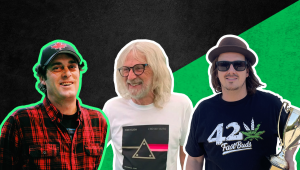
This episode Sasha aka the Joint Doctor will be our guest at Fast Buds Talks. Of course we will unravel how the first Autos were created and why he called the strain Lowryder. And we will talk about how crazy modern Autoflowers are by now and what the future might bring.
Read the full transcript of this exclusive interview below, or watch it if you prefer video format!
Sebastian Good: It's 4:20 somewhere and I am so happy you guys are joining us today for this very special episode of Fast Buds Talks because today I got cannabis royalty here. Yes. Sasha, the Joint Doctor himself is here with me. How are you doing, Sasha?
Sasha: Very good, thanks. How are you, Sebastian?
Sebastian Good: I'm really good. We just talked off records for a second. We are experiencing a heatwave, you and me. I'm in southern Spain. Where are you chilling right now?
Sasha: I'm in Quebec, just east of Montreal.
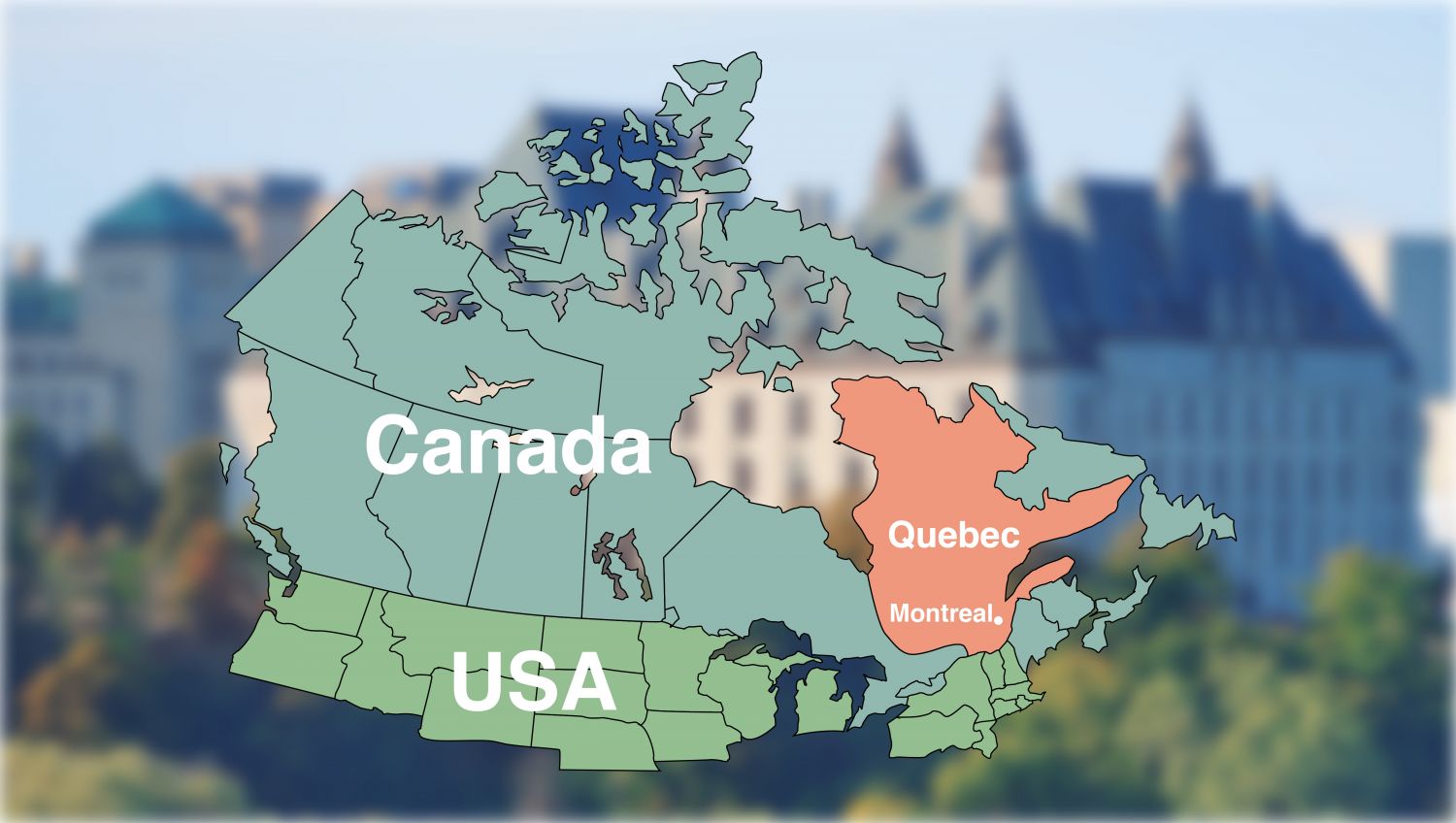
Sebastian Good: Okay. So, wait one second because I had myself sorted out. That's kind of like close to where you're originally from, right?
Sasha: Oh, yeah. I live down the road from where I grew up, actually. I've been back here for a number of years. My wife and I came back and bought a little farm here. So, yeah, it's a really nice area here. Just by the border with Vermont.
Sebastian Good: Okay. Cool. It sounds really, really beautiful. Especially right now, like summer spring, fall, sounds beautiful. How about the winters? I'm not a big lover of really cold weather. I think it can get quite cold there, no?
Sasha: Yeah. Pretty cold. I mean, it can get down to 30. That's probably the coldest it can get. Sometimes, in January, or February, it gets quite cold. But we do get a lot of snow so there are a lot of activities. I mean, especially here in Quebec, we love winter activities, hockey, skiing, and anything that happens on ice just makes us happy. So, I actually quite like the winter. And I have a weekend job actually working at a ski hill just to keep me in shape and whatnot.
Sebastian Good: Oh, yeah, you said that during Spannabis, I think you told me that you were working at a ski hill. I actually had a travel and work visa for Canada. This was about 12 years ago or so. I did... maybe you could call it a mistake or maybe I shouldn't, because I started in New York, 10 days later, I met my wife, three months later, we got married. Result, I never made it for the travel and work to Canada. And this with the ski hill was exactly my plan. I wanted to work at a lift or something and just so when I'm off work, I could just get a free ticket and I can just go snowboard all the time.
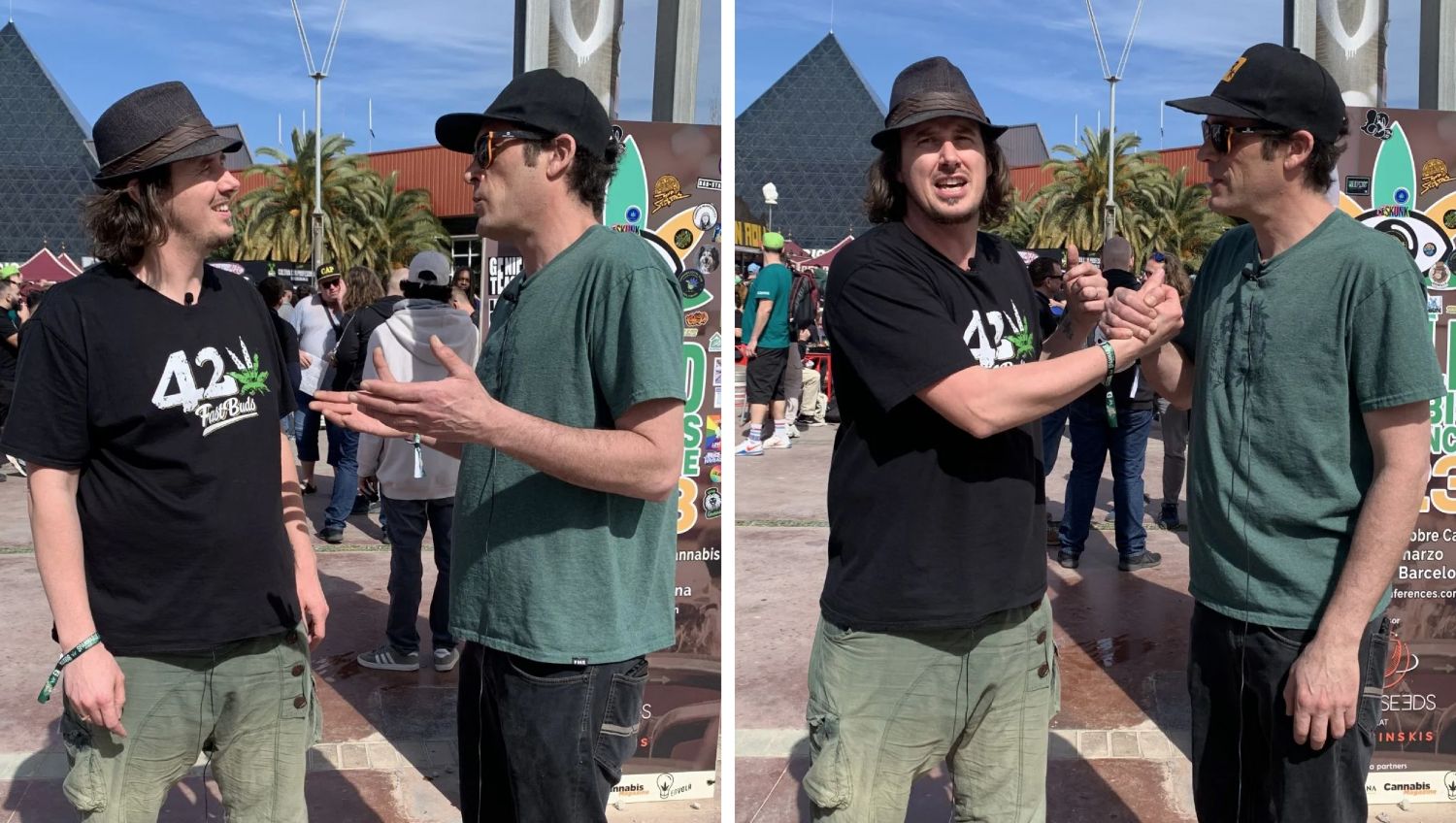
Sasha: Yes. That's the idea. That's the idea. It's definitely amazing to work on the mountain and just be with great outdoors. It doesn't matter what the weather is. And that's the main idea, yeah, you get to ski anytime you want.
Sebastian Good: And is your wife from that area too? Because there's an amazing part about that is that's what I'm missing out on my end or even my wife because she's from the US, we don't get to hang with our family so much, but you guys really do. That's the best part about it.
Sasha: That's definitely one of big reasons why we came back here because we moved around a little bit. So, my parents were very close family network, friends. We even have a summer festival. I don't know if I told you about it.
It's called Shazam Fest. It's coming up next weekend. So, it's organized by my family, my brother and myself, and a lot of volunteers. It's a weekend fest: music, acrobats, a lot of different things happening on our family farm, on my parents' family farms. So, yeah, if anybody's around in the area, check out Shazam Fest.
Sebastian Good: I wish I could make it but, well, I'm some, I don't know how many, like, 8.000 kilometers away. I don't think I'm going to make it right now. I wish I could come over. Sometime, I need to come and check out, make like a whole tour. I have so many friends now I met through this cannabis community on the Internet, and I talk with them here in these chats. So, I chat with them just in the Instagram, chat messenger or so, and all these people I want to just visit and I want to see where they're hanging, where they're growing, and of course, I want to test their weed.
Sasha: Absolutely! Well, if you come around this area, I will definitely take you to check out the industry, both the legal and the underground industry here and what's going on and hook you up with people.
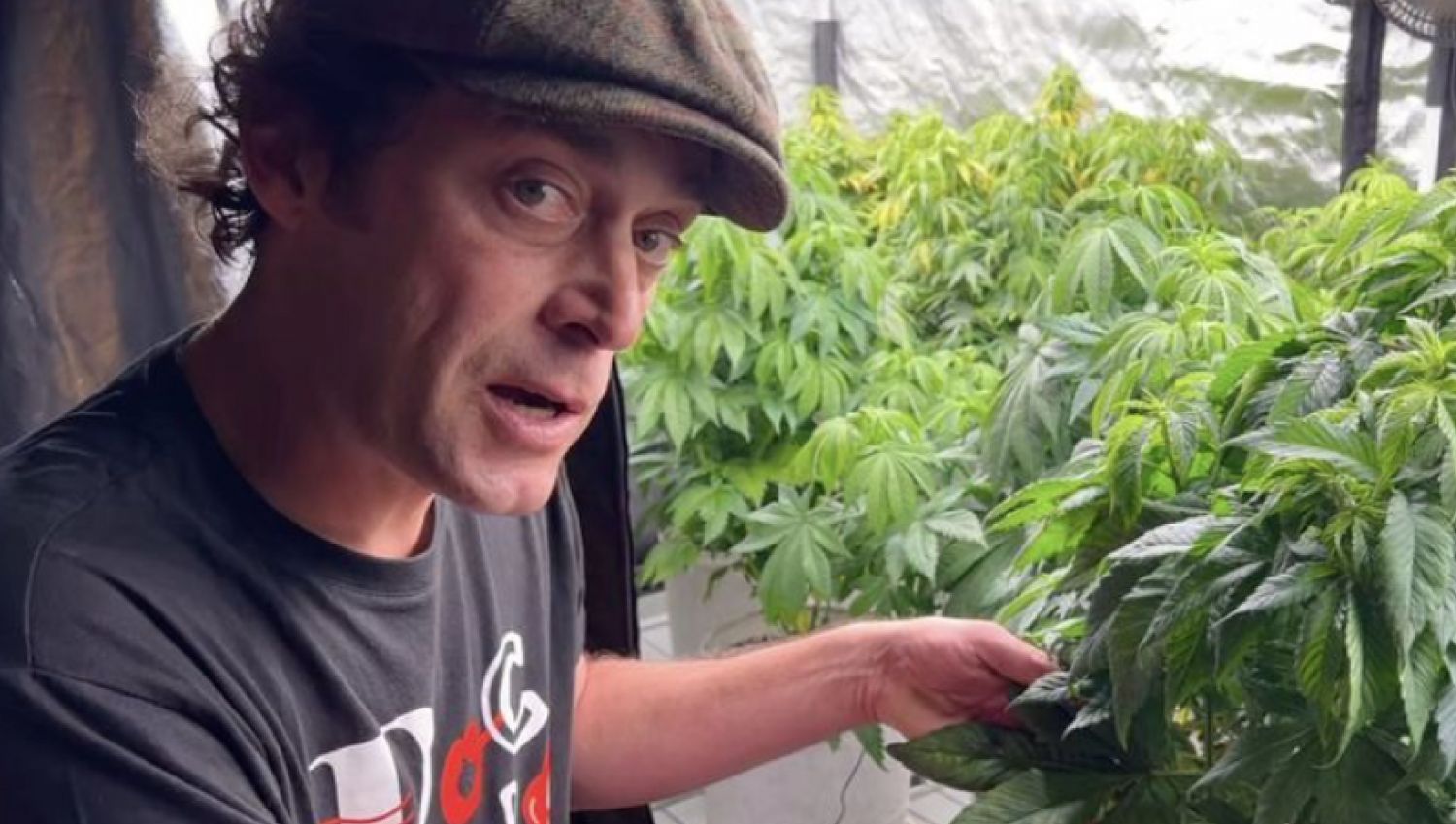
Sebastian Good: I'll take that, one day, I'm coming over. I'm going to phone you up and say, Sasha, I'm coming over and I'll bring my camera too so we can have some fun and share it with the community later on.
Sasha: Sure.
Sebastian Good: So, you're working, of course, Doctor's Choice. We know Lowryder, all that. We're talking about in-depth about that very soon. But you also work on other projects. You're very involved in the cannabis industry. What else are you working on right now?
Sasha: Right. At the moment, one of the things I'm doing is working at a processing facility. It actually started by two friends of mine in Montreal. It's called J2Science. And they hired me to develop some products for them, specifically hashish. Because that's another thing that I happen to have some skills and knowledge about. And I've been making hashish for many years, right? Mostly with not the residue, as they say in France, but trim and byproducts of cannabis growing.
Sebastian Good: So, how are you doing that? You're making dry sift or you're making wash? You're making ice?
Sasha: Well, in this case we're definitely making ice hashish. Just clean water and we use very good quality trim. Actually, variety called Black Cherry Punch. It's one of our popular products.
Sebastian Good: That sounds delicious, man.
Sasha: It is. It's a really good product, actually very strong as well. We've gotten tests up in the 70% TC. So, that's pretty high. And it's handmade hashish. Because we've discovered that you can't really replicate that product by doing it on a mass scale. There's no real way to do it.
Sebastian Good: I was planning on it on a different time too. It's kind of like with what you're getting in the legal system terms of mass-produced cannabis versus craft cannabis, kind of similar. Would you say so? It's like, it's just that tiny top notch better. It's not just the love. It's just like the people who are experienced, they're really doing this, they're really in for it, and they're on it. And in the process, and that way I think that's where that tiny notch better comes from.
Sasha: Absolutely. And it's so nice to know where your cannabis comes from. I think one of the big mistakes here with the legalization everyone thought, oh, now everything's going to be done on a big scale. Nothing's going to be done by hand. It's all mass produced. But like you said, I mean, people don't really want mass produced. They don't want industrial weed. It's the same.
Sebastian Good: Yeah. It starts with the growing itself. It starts with the neutralizer. Listen, even if you have an AI tracking every plant and checking out how good it performs, it will be never like your eye looking: oh, no, this plant here definitely has some potassium deficiency and I can treat that by itself, give her some extra, and that way, I just have an eye on it. And then in the end, it goes over the trimming too. Like, who really wants machine-trimmed weed? It's just something different in the end.
Sasha: Exactly. But it's coming back around to that. The operations like they were going to go really big and grow millions of pounds, a lot of them just are going out of business. So, it's coming back around to the little guy. It's just very hard to get into the industry when you're small. It's the way it is now.
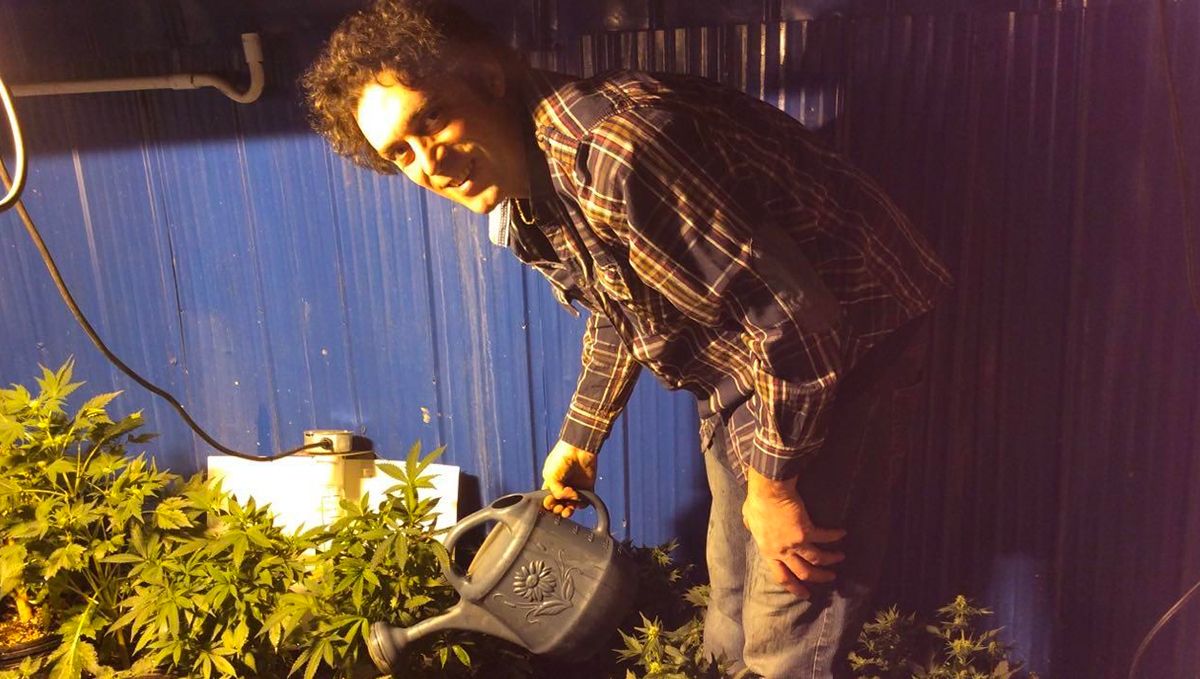
Sebastian Good: Of course. As always. It's with everything. It's not just with cannabis, but once it becomes legal and the money pushes in, money always rules, unfortunately. But the consumers are coming around, they're realizing what's good and I think, down the road we are on the right path, I think.
Sasha: Yeah. Well, so that's basically it. I've been, trying to get in for a number of years now, getting into a position where we can produce our seeds here for the Canadian market.
So, I went from being sort of a medical grower and able to produce on a small scale to trying to now go get into the legal industry and get my seeds and Doctor's Choice into Canada.
But unfortunately, we're just not quite there yet. Another thing I'm doing, and I just can't talk about it very much because there's no point until everything is licensed, but very soon I hope to have some news. We have a facility here with a couple of my friends, partners, where we'll be basically an incubator for seed brands to come into Canada. Seed brands like Doctor's Choice but not only Doctor's Choice.
Sebastian Good: So, basically, like a facility because the seeds need to be produced there, kind of, and that's the way?
Sasha: That's the thing. Basically, you could only import cannabis products for research. If you're going to sell it here in Canada, they want you to produce it here in Canada.
Sebastian Good: It's similar in Thailand, I'm pretty sure. This is also things that they're planning in Germany, and so I think it's also the same thing. I hope down the line, at one point, we are going to be able to find a way how to deal with this just like with bad things like cigarettes or alcohol. They're available everywhere. There's no big issue with that because they have a lobby. But we don't.
Sasha: That's unbelievable. It would be nice. What about the social aspect? In Spain, at least you have the social concept. It's much more rational than like the legalization model that we have here. So, you can buy here. It's commercialized. It's not legalized. You know what I mean?
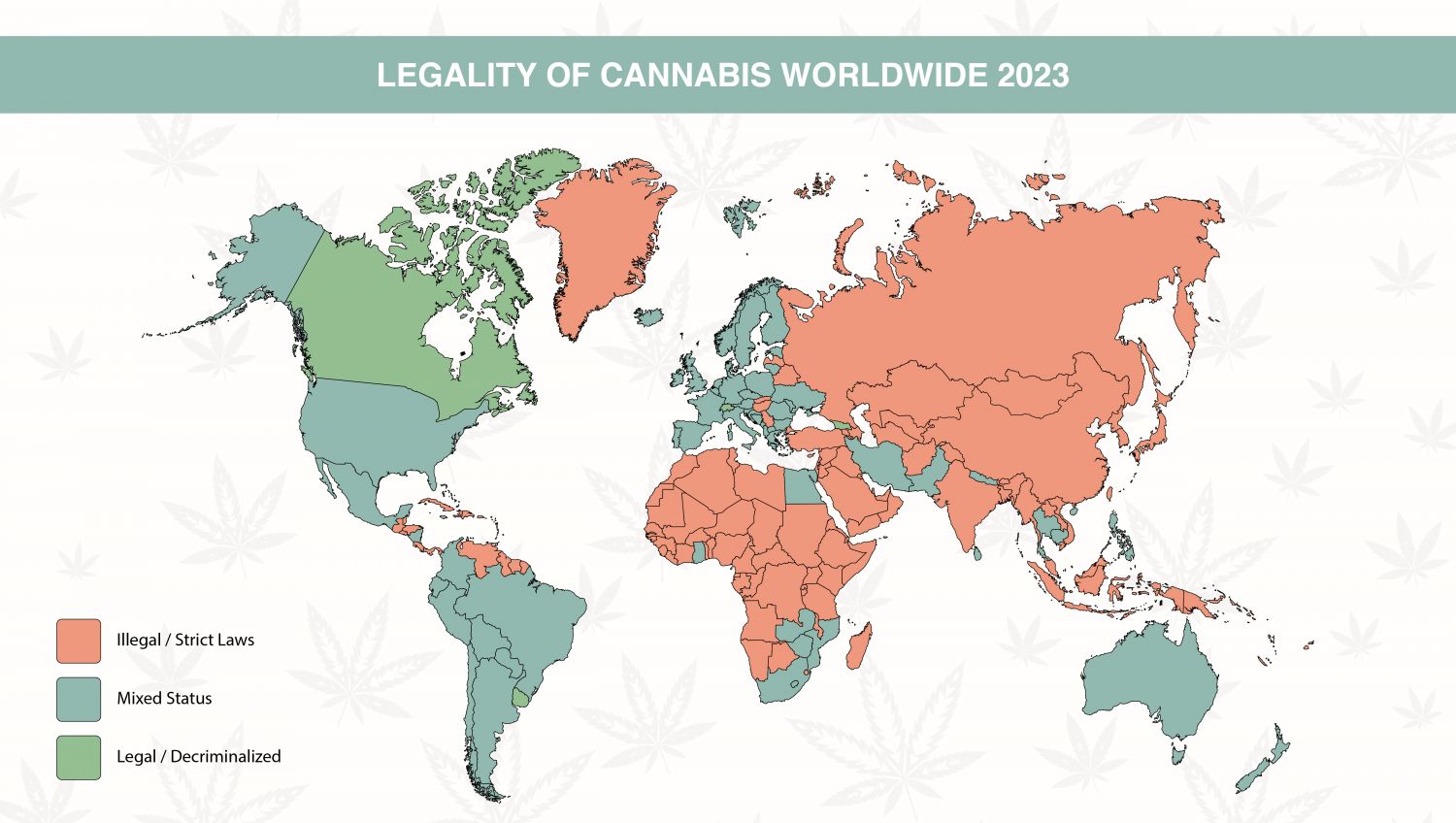
Sebastian Good: It's a very, very fine line. I understand it. And it is also where we talk. There's still a gray market, black market because people, like the small ones, they can't even make it into the legal system, and that leaves them behind again, and then big money is pushing in, and in the end, corporations. So, yeah, I like that about Spain. What I do not like 100% about Spain is that we don't just have a limit like let's say five plants, four plants per person, flowering plants per person, and that is okay. And not this gray zone of, yeah, it might be okay, it might be not. They might knock on my door and say, hey, I'm going to take your plans. Come with me. At the end of the day, I would only get a fine, but still, it's kind of like a weird feeling. But I'm sure you know how that feels, because I think you went through a lot more than that. But there's one question which I wanted to ask you right away in the very beginning of this, and that is, Joint Doctor, that's you. That's how I knew you before I even knew your face. Why Joint Doctor? How did that come about? I think everybody wants to know that.
Sasha: That's a good question. I don't know if anybody has asked me that before, but I gotta go back to when I was in college. I was like 20 years old, I think. And I was already growing some plants and I was known for my love for weed. And actually, my friend Paul and I were at a ski hill, and it was quite a small mountain. There was a snowstorm, but somehow, I managed to roll a joint before we got to the top of the hill in the snowstorm. And so, I was known for having skills as a roller. And one time, I grabbed one of his joints. It was just poorly rolled. It wasn't smoking. I was able to fix it and keep it going. And he's like, "Man, you're the joint doctor." And, I don't know, it just kind of stuck from there.
Sebastian Good: Amazing.
Sasha: And actually, I used it as a DJ name because for a few years there, I was into playing records, reggae, especially at parties. So, I started using that as my DJ name. In underground, I was using it to write articles. I started to write some articles. I didn't want to use my real name back then.
Sebastian Good: I mean, I'm still not using my real name. Good is not my last name. So, it's just it came up with something. In the end, I was a bit mad with myself that I started to keep my Sebastian because my real first name, which nobody calls me, is Philip. So, why didn't I go with Phil Good?
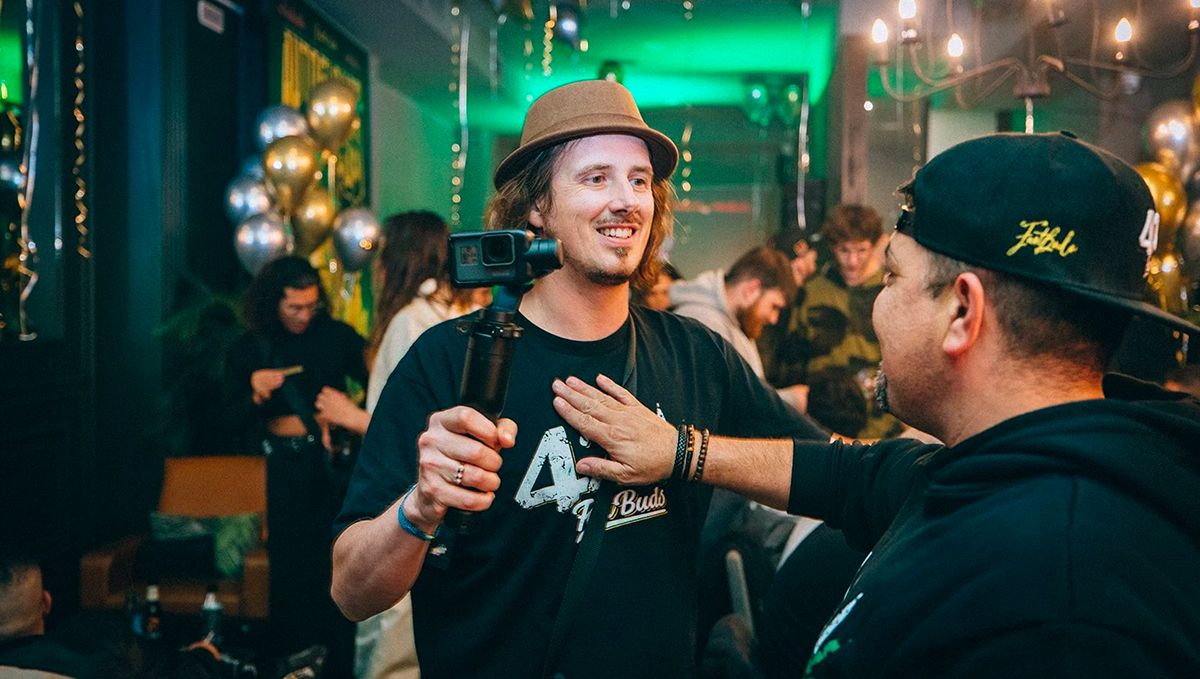
Sasha: Well, Dr. Phil Good has been done before.
Sebastian Good: True. I want to go back a little bit to your past because that interests me a lot. Because you have a super interesting family background. I can relate to it very much because I feel a little bit like what your parents did. Because I was for some time in bigger cities like New York and Barcelona, and eventually, I wanted to get out, I wanted to go, I wanted to grow more. And even though I'm not still there, I don't have my own farm or anything, but that's what your family background is. Is that correct?
Sasha: Yeah. Exactly. My folks basically chose to move out of the city just around the time that I was born. And like a lot of hippies back then, they were looking to just create a better life, to live a more healthy life, grow their own food, be more sustainable. So, they bought a small farm and started to raise goats. And so, I really had a different upbringing and part of that was cannabis because a lot of my parents' friends came to visit. We had a nice little social scene there. Cannabis was something that was shared, and it was never hit on us, my brother and I. It was something that my parents were honest about and, it didn't have a negative connotation in our family. And my father long before I started to be interested in cannabis, I was around him growing and also, he got unfortunate troubles with the law, ended up going to prison when I was about 11 years old.
So, I had to take care of things a little bit more starting then on the farm, but there was this... It was hard on my family though back then. It was a positive experience, I think my father would say, because he got... He went to prison for a year, came out in amazing shape, just he was like buff as hell. I was like, "Wow, that's my dad." So, we started to run cross country running from then on, and our family was in a lot of races. I was into sports. I wasn't into smoking. But I started to help my father with his growing. I was responsible for watering his plants and whatnot. So, that's for sure where I got my start, continuing a little bit the legacy because my father was really known to have some of the best weed around here.
You got the understanding, like the '70s, there weren't too many people growing here yet. I mean, it was like imported weed, it was seedy weed. So, his sense of me was really something special. And he's still one of my biggest fans. He comes with me, my mother as well, to some conferences. He's just got a ton of amazing stories, and he tests my plants in his garden.
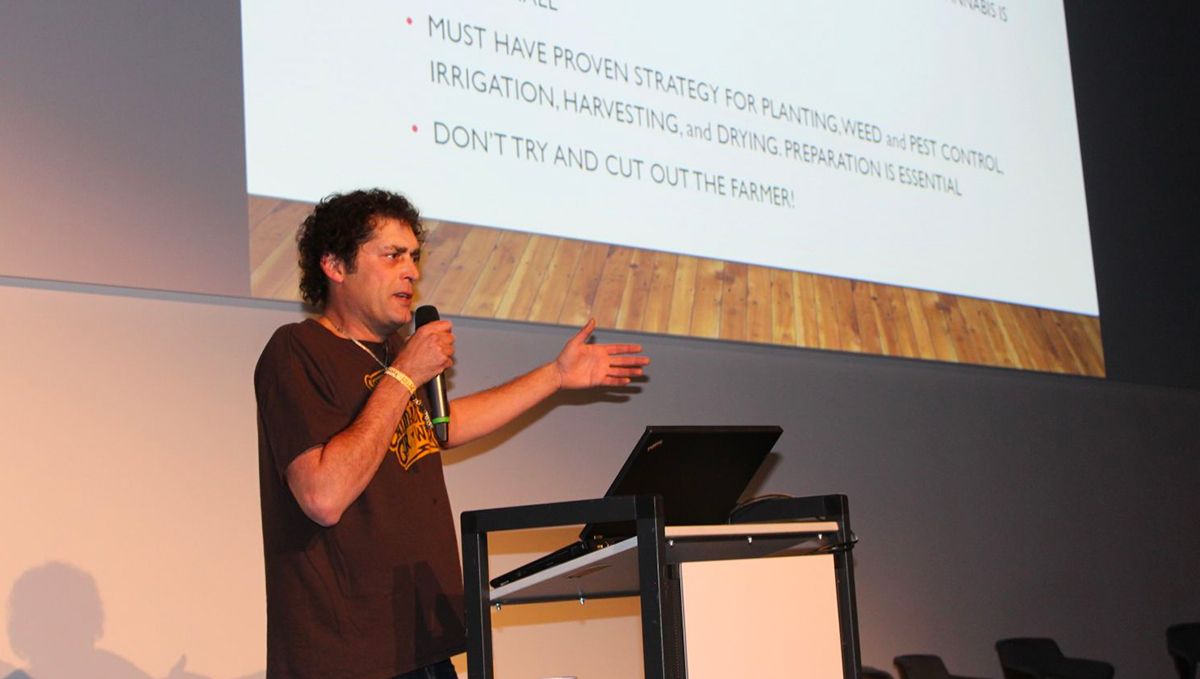
Sebastian Good: He's a very good test grower. I hope one day that I'm going to be a test grower for a family of mine too, because I can relate to this. Cannabis has no negative connotations in my household. And my kid is only five years old. He does ask questions eventually, and you do have things to explain because you do have to be careful in a sense, in some senses. And that is very interesting for me to see how that was for you growing up, and that you were into sports, you weren't into the plant like that. And that is obviously very interesting. But another thing which was interesting to me is that your family already lived an organic lifestyle before organic even was a thing.
Sasha: Absolutely. It was just starting to be a thing. There were some books written about biodynamics in the '70s and it's really where it started. My parents both, they were well versed in that type of knowledge and they wanted to apply some of the things they learned, but my father became involved in the local organic chapter. There basically was an organization that he helped start called Organic Crop Improvement Association. So, that was they ended up organizing chapters of farmers all around the world to have the first type of certification. So, that's what allowed him. Eventually, he was traveling around a lot, visiting to help certify places like coffee growers in Peru and whatnot. Today, organics is just huge. But he was there right around the beginning.
Sebastian Good: You think maybe that's one of the reasons other than that he knew how to chop the males down before they pollinate the females, and so he got in a sense familiar? Maybe organic farming is also what made his weed special compared to others because my honest belief is our organically farmed herbs are just tasting better, in the end.
Sasha: Oh, absolutely. And there's no question about it for me, and there's no substitute for-- If you're going to put food or smoke into your body, eventually you're going to want to know that you're putting in wholesome ingredients in that and also bettering your soil. It's about just sustaining the health of your soil, the environment and also safety of your workers and just the health of people working.
Sebastian Good: And for me, just as a private person, my child, as I said, five years old, they still put weird stuff in their mouth. I don't have any kind of chemicals. I don't need to worry about that. And it is nice to see him growing up around all these bugs and he just collects and comes running his hands full of worms or bugs, shows them to mama, mama runs away, we have a big laugh. This is like--
Sasha: Oh, wow. That's really cool. He's got a budding interest in natural science.
Sebastian Good: Absolutely. It makes me super proud and it also shows me that it's the right path, to go out of the city at the point when we left because he was-- From the moment he was born, I was like telling my wife, "No, I don't know how long I can do city life anymore." I think it's like with a kid, the first year was okay, still in Barcelona, but then it was hard for me to take. Then I was in that sense lucky, COVID just convinced my wife, not being able to leave the house for eight weeks, like legally you cannot, the kid cannot leave the house. She was like, "No, I'm out of here. I'll need a garden. I need to live in the lands too."
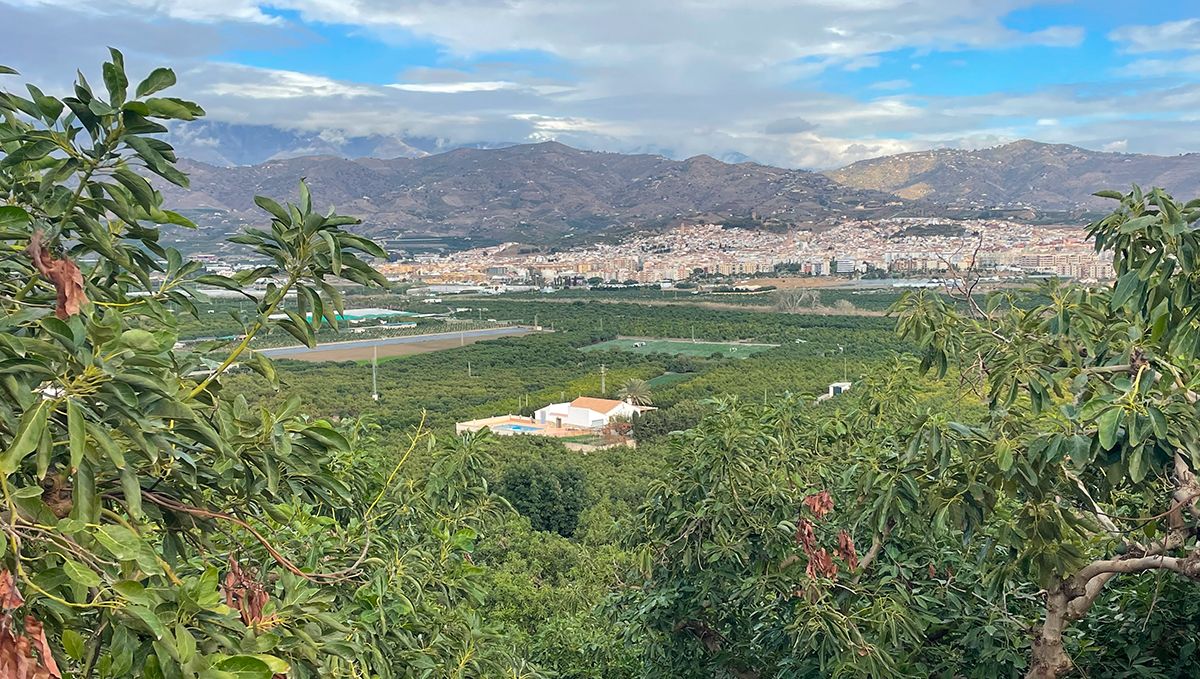
Sasha: I think a lot of people have felt the same way as you. It's the same kind of force that brought my parents to make that decision back in the '70s, back to the land, back to a more sustainable lifestyle. And I think just having access to the country once in a while makes it better, right? If you're stuck in the city, it's difficult. Because I think all of us have that love of nature in us somewhere. Some of us don't know it yet.
Sebastian Good: Yeah. Growing something is also something different.
It's like you have a special relationship to what you're growing and, therefore, it just seems to taste better.
Sasha: Yeah, it does, it does, always does. And that's true for not just weed, but anything that you put your own love into, and just through a little bit of love every day, eventually, and patience, you get to something that is just really special.
Sebastian Good: Absolutely. One more time, I don't want to ride too long on this, your dad getting busted and having to be a year away from you. How did that affect you, A) your relationship to the plant? Because you suddenly were confronted with the reality that other people have bad connotations about cannabis, and then B), about the authorities? Because for me, I haven't experienced anything like that, but still thinking of cops, I just think of my opponents, not as my helpers, just because I know that in the country I am, cannabis is not 100% legal, and they could bust me. But you had to experience that as a child. So, how did that influence you?
Sasha: Well, I felt like you for most of my life as well. Because of what happened, that instilled definitely a fear of the authorities, a fear of the cops in me. And also, my father's-- You're part of a conspiracy now, whether you like it or not. You have to be careful who you talk to, be careful what you do. You have to be smart. And the last thing I wanted to do was end up in prison as well. I wanted to find a safe way to continue working with this plant I love.
So, everything I did, I was very careful and had very little problems with the law, but not to say I didn't have a lot of close calls and I just consider myself lucky today that I don't live in fear. Because that was, for many years, I'm like, I'm just walking the line. I'm trying to do everything right. I'm not hurting anybody, but at any moment, I could lose all of this, right? So, it's really a nice thing not to live with that. Not to say that fear doesn't come back sometimes a little bit of a vestige.
But now obviously, in the last few years, I've come out because of legalization, because of medical permits, I'd been able to show my face, use my real name. And just it feels good to be able to represent. And look, if something happens now, I'm ready to face it and I'm pretty sure it's not going to be the end of the world because we're not dealing in hard drugs here.
Sebastian Good: Yeah. Absolutely. And you are now in a better spot there in Canada. And as I said, I wouldn't do what I'm doing if I'd live in Germany. I think we said it off record earlier, here in Spain, I never have more than six plants, seven plants. I can't. I'm showing my face in a country where it's not 100% legal. How amazing would it be to have 100 plants, to spend, to go through a huge garden? Even though it comes with a lot of work, it would be amazing to have that luxury. But for me right now, I'm providing for myself. My cannabis doesn't leave my house really. So just for that reason, just for a certain fear. But you said the love for the plant because you said before you weren't, you were just watering, you were helping out your dad. Did it spark something in you during that time or did that have nothing to do? When did you really discover your love for the plant, your passion that you knew "I'm going to go with this"?
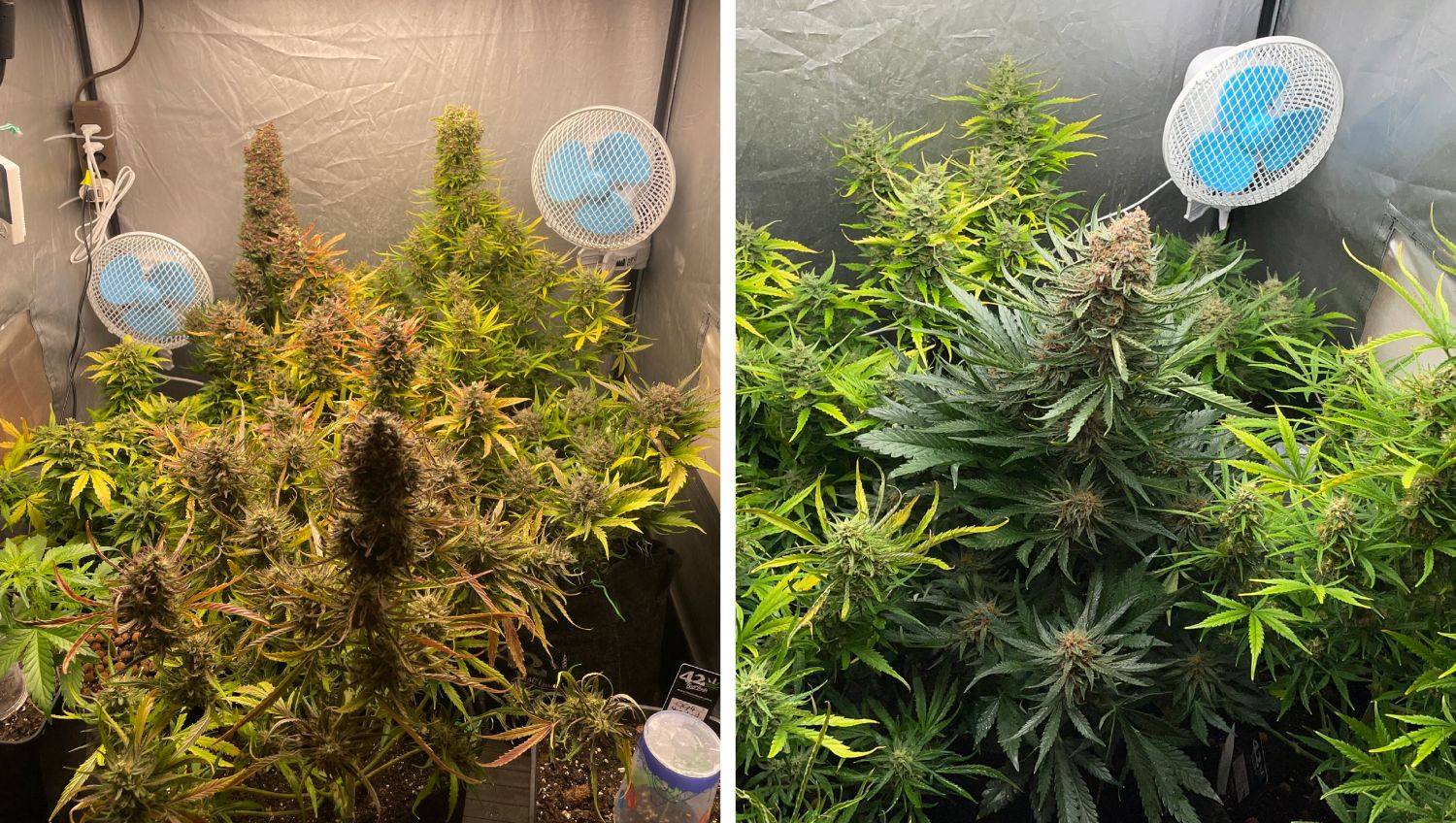
Sasha: My life started to take a different turn when I had a motorcycle accident when I was 16. It was a long recovery process. That summer, like an uncle of mine, he was a farm worker, but he introduced me to smoking. And it was just something that I found was really help me come out of my shell and also help me deal with the pain. And actually, it really changed my life and we started to grow together.
Sebastian Good: Interesting.
Sasha: We had some amazing genetics. We were growing some seeds from Sensi Seeds back then like the Big Bud and they just-- He already knew. He was a good grower. I learned a lot from him. What I really liked, we would go far into the forest. We had like, it was like a guerrilla's style of growing. Really like the place where people don't go and that was part of the fun, was actually just being out there in nature, going early in the morning, carrying compost, a bag of compost on your back. And just there was a little bit of the thrill involved as well. But those were just beautiful plants and the product was amazing. People loved my weed, and it became a full-time adventure for me for a few years. At least during the summer, I was a student, and in the summer, I'd go back to the farm and grow some weeds. So, it became a lifestyle that I embraced wholeheartedly.
Sebastian Good: Of course, of course. It sounds so fun. The first plants I ever grew were around that time. Unfortunately, I didn't know what I was doing then. And also, guerrilla-style somewhere, but in Germany, you don't have these untouched woods anymore. You walk by and most of them were gone because somebody took them away, and it's just like I lost interest. And I didn't have that possibility to just grow where I lived, with my parents and stuff like that. At that time, I wasn't still in the closet, in the weed closet, even though they found it, but, yeah, I'm stopping, I'm stopping. They found my hash, my boxes of hash and stuff, but you know. That was interesting. So, you did that still around the time when you were still at home. But eventually, you moved around a lot and you never really stopped growing then. No?
Sasha:
Exactly. That was part of why I guess that Lowryder and autos emerged from all that because it's a plant that I could just take anywhere, grow anywhere, and weather didn't matter: it was like indoors in the winter or in my garden in the summer, it just didn't take a lot of effort.
But yeah, I was in Vancouver at a very crucial time. I think after this time we're talking about I was growing up and I finished school and I went to join my girlfriend in Vancouver because, at the time, that's when it was just going nuts as a city that was tolerant to weed.
Sebastian Good: That's what the time was when Jorge was up there too. Before Jorge came to Europe and stuff, everybody was there.
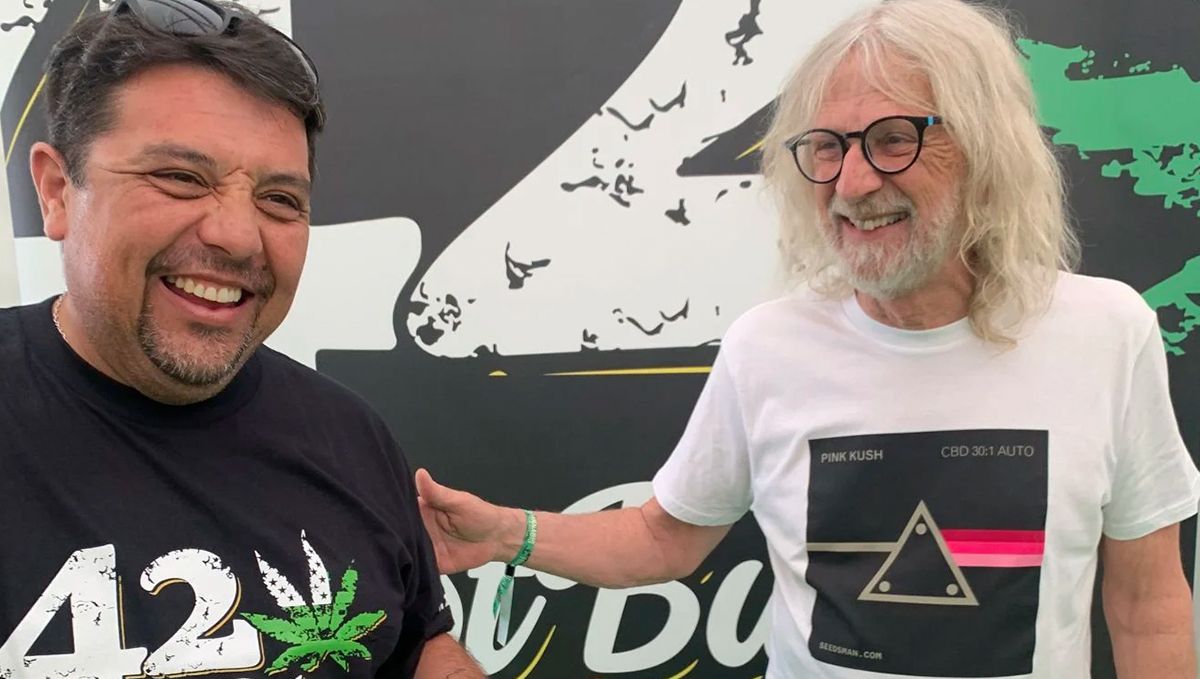
Sasha: He was there very early on. So, you had this guy Marc Emery, right? He would call himself the Prince of Pot. He was pushing the envelope with the-- He started a store where they were selling seeds. And the cops had a lot about-- they weren't bothering him because Vancouver has much bigger problems, especially with hard drugs, and they have more of a tolerant attitude to cannabis in general. Vancouver became like an incubator for cannabis. A lot of moves there to start growing and to start a business, whatnot. And I started to work a little bit for Marc Emery. He had a magazine called Cannabis Culture. So, that was when I started to write some articles.
And from then, it's a bit of a long story, but I ended up getting an opportunity to go to Poland to study hemp.
Sebastian Good: Exactly. I heard about that before, that was that you, in the end, had a comparator trial there. Correct?
Sasha: Yeah. At that point, the fathers of mothers of Lowryder, or whatever was before, was just one of these strains that I was testing out. I brought all my different seed strains, and I was able to do this comparative trial in Poland, the second year that I was there.
Because I was studying hemp but they knew that my real interest was in THC cannabis.
So, I was able to get a part of their greenhouse to do a comparative trial and it was actually we started quite late in the summer, and it was—So, this was the parent of Lowryder, which was at the time, which was only called Willy's odd, Willy's automatic. It just stood out as something that flowered really early and that was really quickly. And so that was before we were really understanding what we had. But after that--
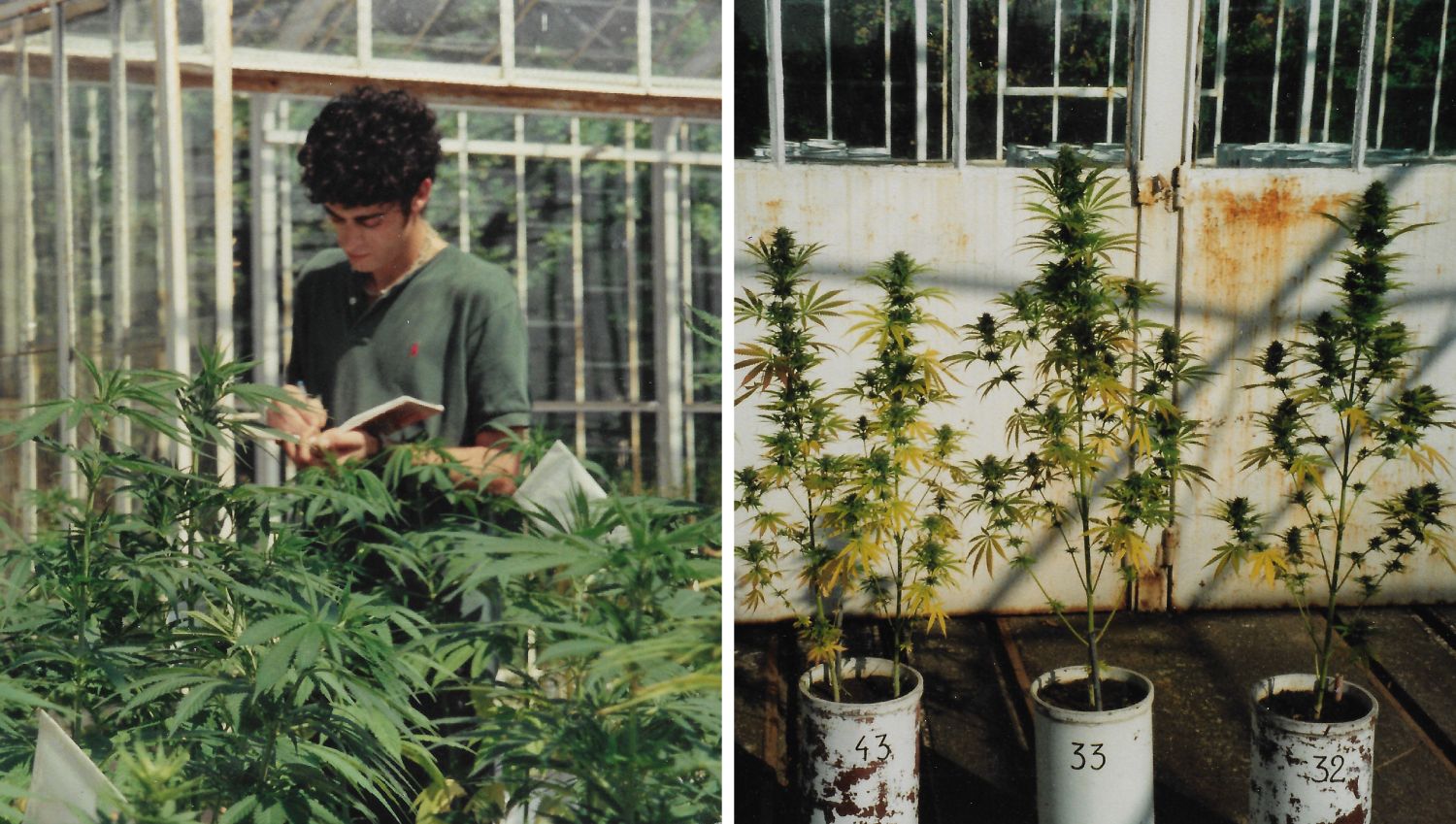
Sebastian Good: But before we get too tangled in that, let's really start talking about Lowryder because otherwise, people are going to be mixed up. Because I really want people to really know what this is about. This is what founded your legacy kind of, you know what I mean? I want to talk about your tips about growing autos, automatics, auto-flowers, or whatever you want to call them in general, but I want to know the history. And I think it's about 20 years this year that Lowryder hit the market?
Sasha:
Exactly. Yeah, it's been 20 years, 2003, that we came out, that we actually sold our first batch of seeds. And so that was the first generation of Lowryder. But it was actually a few years in development. It started a few years before.
Sebastian Good: Let's just check what drove you away in the end. Because you said people really loved-- Like you were a teenager before you moved out. You grew bombshell weed. I heard Big Bud, which was new at that time. What drove you to switch a bit away from the buds to the seeds, to the breeding? What sparked your interest for breeding?
Sasha: Well, there was a friend of mine who is an older fellow, a really interesting guy from-- Called Antonio. I talked about it before. He was a bit of—He was kind of like a Mexican Rastaman. He was really wise and knowledgeable about weed, and he just had this incredible energy. And he was one of the friends that I grew up knowing close by. He had this really amazing knowledge about cannabis. And he collected--
Sebastian Good: So, it was on top of that you already grew with a cannabis growing father, you had cannabis guerrilla grows with your uncle, and you also had Antonio, Mexican Antonio, who was another mentor. So, you were really blessed with figures, older people who really gave you a lot of knowledge about the plant.
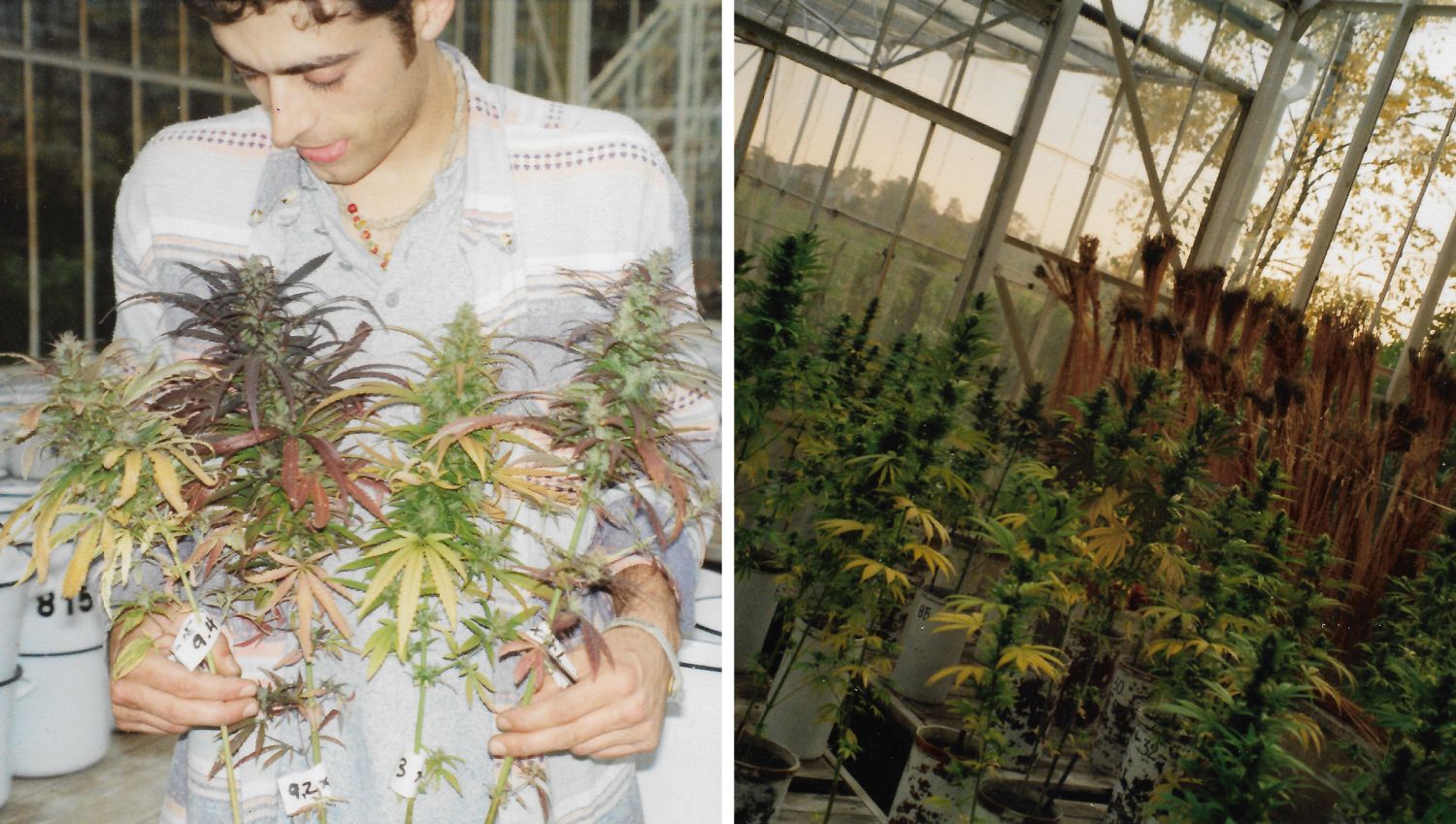
Sasha: It's true. Where I grew up here in the Eastern Township, it's not as well-known as BC, but it does have a history because of all these old hippies who moved to the country and brought seeds with them from traveling in Afghanistan and Colombia and whatnot. This area was known to have really good weed. And a lot of my friends, my generation growing up, we shared this interest and we traded seeds. I was well surrounded. That's for sure. And it was just an amazing place to come from in terms of the influences and the mentors. Antonio was definitely one of those. And he collected seeds more than-- Most people had just their one strain or whatever or some seeds, but Antonio definitely had a collection. And one of the seeds that he had that he originally gave me was called Mexican ruderalis.
Sebastian Good: Mexican Rudy. The infamous, famous Mexican Rudy. For all people who love auto-flowers, you probably heard about it because that is the ancestor of what you created, right?
Sasha: Exactly.
So, back to, yeah, Mexican ruderalis, it was one of the strains that he had, but the unique thing about this was that you could-- I visited Antonio one time, and it's the middle of summer. And it was one year when there wasn't a lot of weed around, nobody had anything to smoke. There were some dry years back and especially in the middle of the summer. So, it's July and I visit Antonio and he has some plants that are ready. It was just picked and they were drying upside down. And there were just really small plants.
It was like, well, it flowered in the middle of the summer and it was ready. He called it Mexican Rudy. It had a nice taste. But it was really all buzz, it was very light. Of course, we didn't complain. It was still nice to have something to smoke.
Sebastian Good: Better than nothing.
Sasha: Better than nothing, right? So, that happens to be-- We didn't understand how it worked or whatever, but he gave some of those seeds to me and also to my buddy Christian. And we ended up starting a grow. The transition from living on the farm to living in dorm rooms when I was studying, and then living in apartments. Now, I was looking to have plants that were much more compact, just faster. I was looking for stuff that was really quick.
Sebastian Good: That makes a lot of sense. So, that's kind of the answer to my question. That was like going from farmland, going into dorms, being in Vancouver or whatever in cities, in small apartments, you needed smaller plants. You needed to be more stealthy.
Sasha: Exactly. And I became more and more interested in just creating more compact, small strains because I was working on some other genetics before Lowryder came around that just didn't work out. Lowryder was something that took several years before we actually realized what we had and before we isolated these characteristics.
Sebastian Good: So, if you had the Mexican ruderalis, now from Antonio. And you were with your buddy Christian, you said, and you guys had to grow together. So, you started the experiments like crossing them, creating hybrids of different strains. Is that correct?
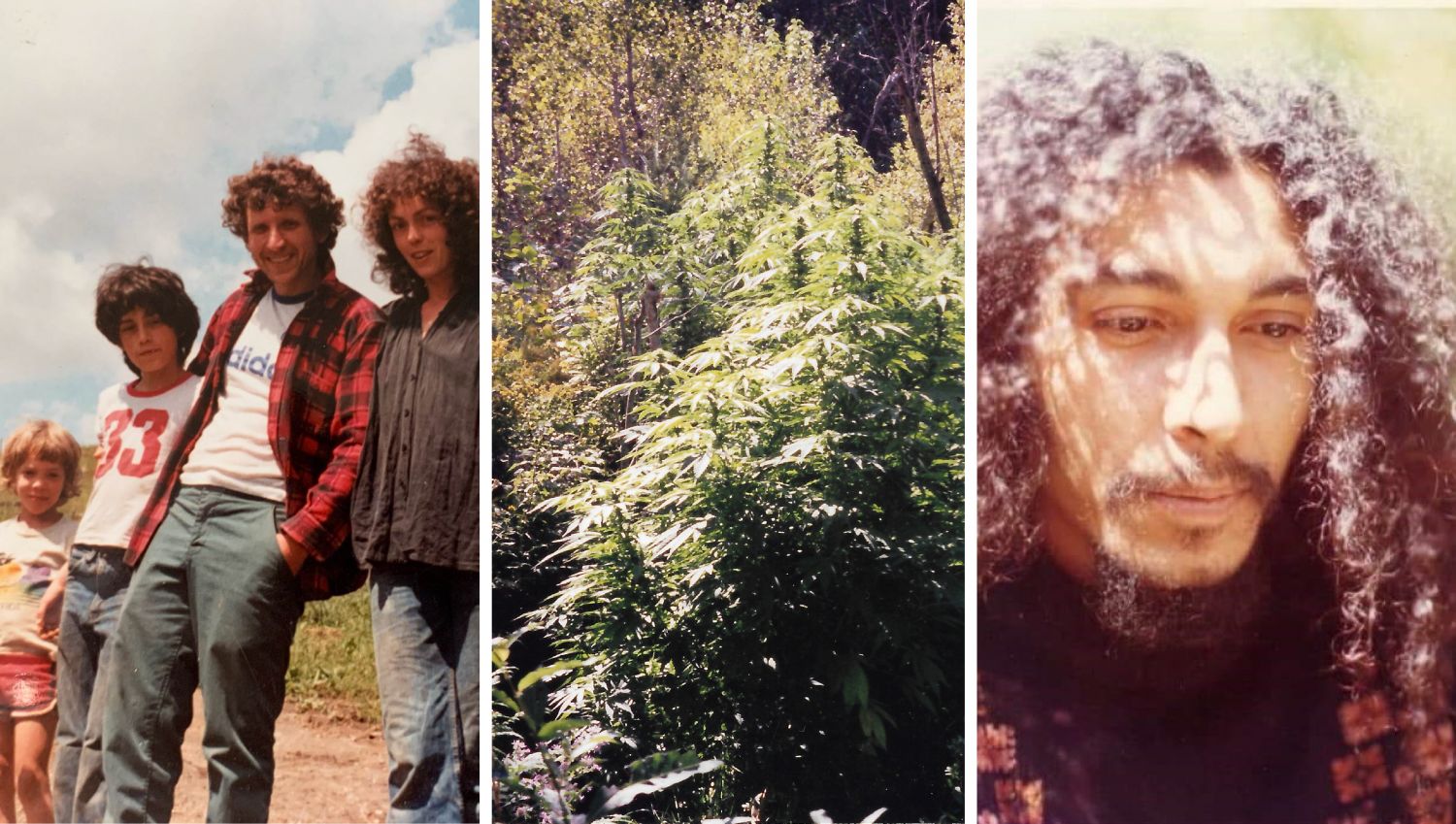
Sasha: Exactly. What happens was we had a room. We shared an apartment in Vancouver. And we had a guest room. So, we divided it up and he had his plants on one side, I had my plants on my side. And if you knew Christian, you would understand because he's like, everything he does is very, very well organized. And I'm more of a protestant kind of guy.
Sebastian Good: I have a friend Christian like that so I can relate.
Sasha: So, we ended up crossing everything that he had and everything I had, we just made a lot of different crosses, and experimental crosses.
Among those crosses was a ruderalis and crossed it with William's Wonder. We had William's Wonder mothers, crossed it with Northern Lights number 2 that we had back then. We crossed it with a bunch of different things actually.
Sebastian Good: And they just went into your seed collections then, those seeds, or you started working on them right away?
Sasha: Yeah. Obviously, it was growing on a small scale so I was limited on what I could test and what I could do. I was trying to develop something that I could probably take to the market.
Sebastian Good: Okay. Makes sense.
Sasha: For us back then, we looked it at as it would be something new, something really cool that anybody could grow. It's just something that's very easy to grow and will make it more accessible. Of course, we had no idea that eventually it would lead to a whole new category of cannabis, right?
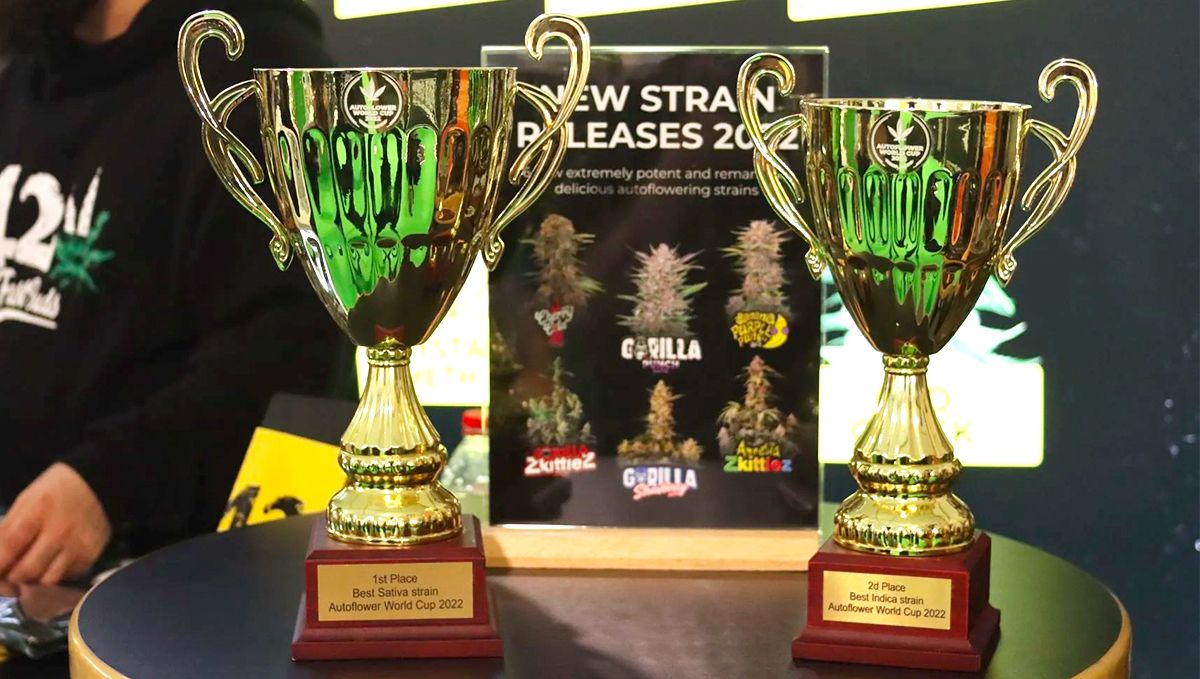
Sebastian Good: Yeah. Then you had it in your hands, and did you give that a name already then? Or did you just take those seeds with you to Poland? How did it evolve out of crossing these with each other?
Sasha: The seeds were taken to Poland, and those were the first generation of crosses I had. So, as you, f1, when you cross an automatic with the non-automatic over the regular--
Sebastian Good: They're faster but not automatic.
Sasha: They're fast but they're not automatic. They don't plow under 24 hours of light or whatever. So, it was only two or three generations later that the auto trade came back. So, it was basically a cross of ruderalis, the Northern Lights and William's Wonder. It was like a three-way cross that was then inbred for one generation, and I was growing--
Sebastian Good: You did that in Poland. You crossed, you inbred that in Poland or not, during that comparative trial or what?
Sasha: Exactly. Exactly. We made the thought that it was inbred in Poland but those seeds I didn't realize like-- Then I moved back to Canada, right? And that happens to be Saskatchewan living in the prairies, working for a company, growing hemp, and selling hemp seeds. That was my day job. And on the side, I was still working on my strains.
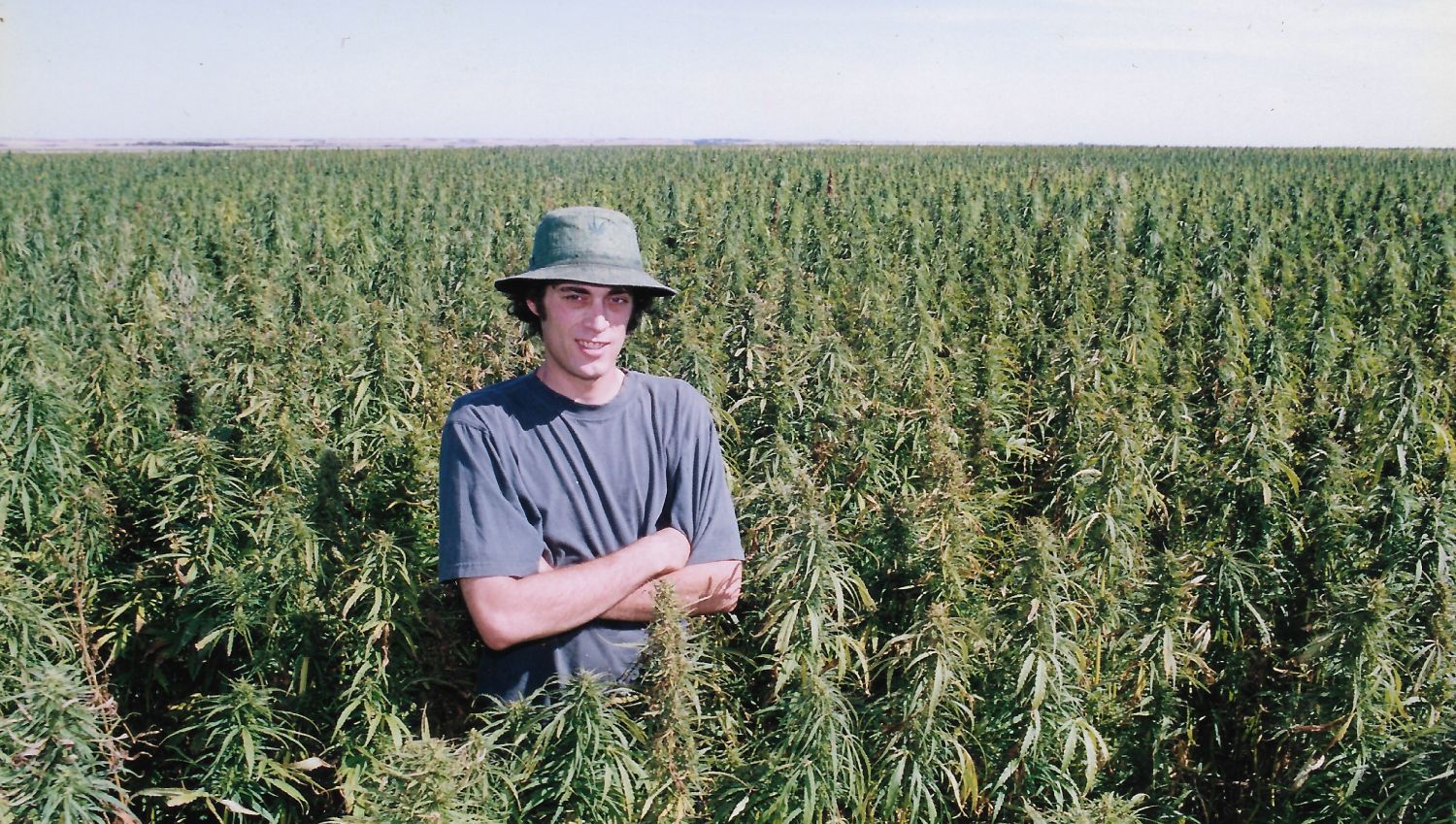
Sebastian Good: Of course. Makes sense.
Sasha: But I was growing in my friend's basement because I couldn't-- I had to be careful. And Dave, this guy, Dave, and he's still my best buddy. He's like, he was a photographer, so a lot of the information, a lot of the photos you see from back then, he was documenting everything. And we were growing in his basement, and we were growing this generation of seeds and the weirdest thing happened because we were growing under 24 hours of light under fluorescence just starting the seeding.
Sebastian Good: Just for the beginning of the vegging.
Sasha: Yeah. No timer, whatever. And we had this after it was just over two weeks these like three or four male plants start to appear, the tiny little seedlings starting to put out male flowers. We were like, "What the hell is this? This is not supposed to flower." They just started growing. But both of us were pretty excited about it. We ended up keeping all those plants and basically forgetting about everything else.
Sebastian Good: You crossed them with the females of the same plant who also came in early?
Sasha: Yes. Exactly. We crossed them with the females but the females obviously started flowering just a week or two later, right, because males start to flower usually a little quicker.
But all of these plants that had this auto trade, we kept them, so the next generation they turned out 100% automatic. We didn't understand. I didn't come from a background of genetics, right? So, we're learning this as I go along. Okay. So, this is a recessive trait that's coming back.
We weren't calling it a Lowryder, to answer your question. It was Willy's automatic.
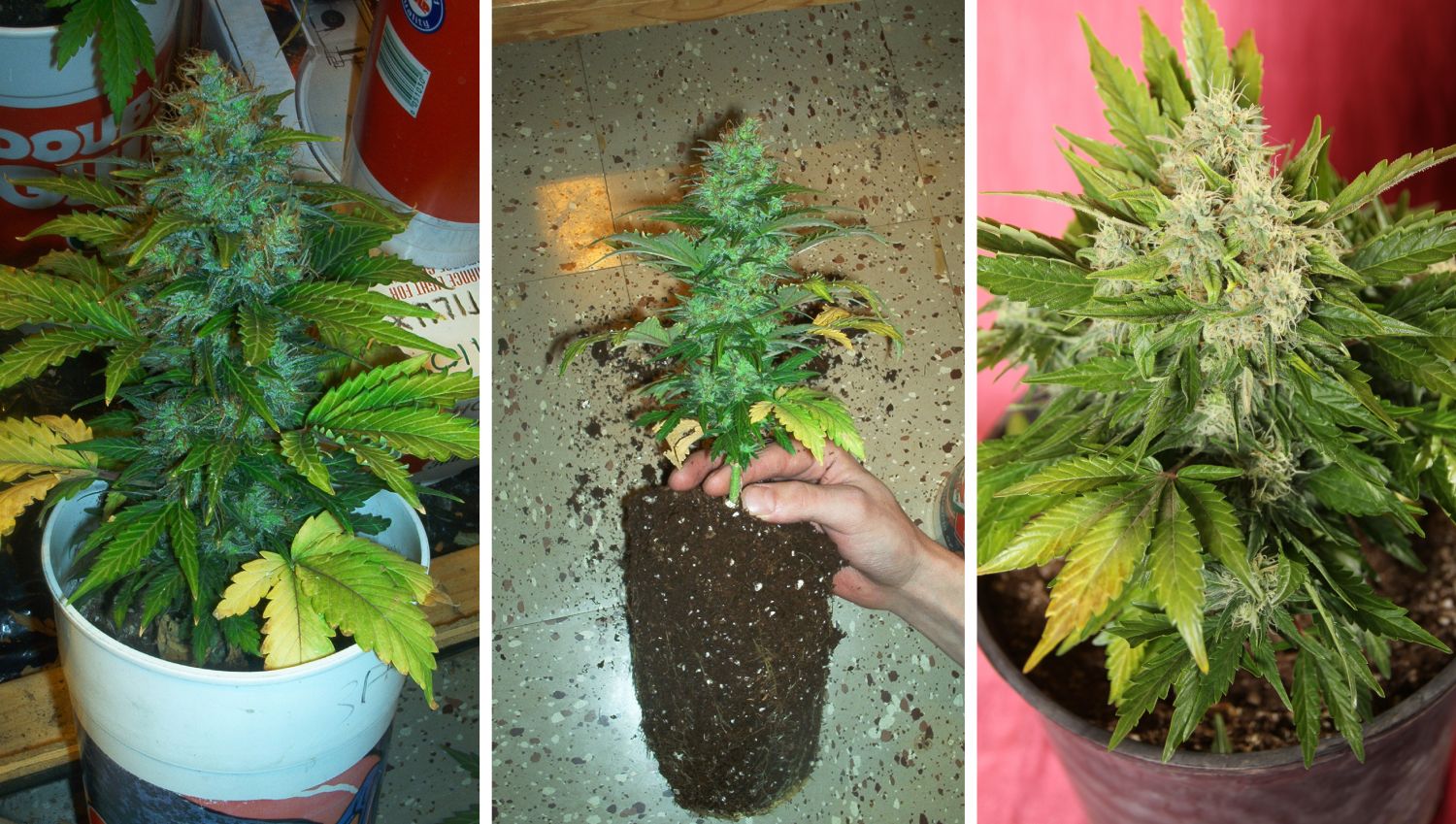
Sebastian Good: Oh, from William's Wonder because William's Wonder was one of your favorites before. You had the mother of that.
Sasha: Yeah, yeah, I really love the taste of the willies that we had. And the taste still, it came out a little bit in those first generations of Willy's automatic. Now, then a little later, we decided to call a Lowryder. I actually got the idea, I was reading this magazine called Lowrider, about the Chicano lowrider car.
Sebastian Good: Of course. No. Exactly.
Sasha: Because it has some Mexican ancestors, so we were coming up with--
Sebastian Good: Makes sense. Cool.
Sasha: Except we put a "y" in it, just to change this.
Sebastian Good: Definitely. So, then Lowryder, you had Lowryder. Because then you had the auto gene stabilized from there on. How long did the selective process take from there? Because I'm sure you grew, once you had the seeds, you had to pop them right away to see what happened. How did it go from there?
Sasha: So, it started out as like it was really small scale, man. The Internet was just starting to be a factor back then in life. To get the word out of there about Lowryder, I was really active on a lot of forums. I don't know if you've heard about like overgrow.com and Hybrid.
Sebastian Good: Hybrid, you were running that. You were running that forum.
Sasha: Yeah, I was running that. And it was sort of like just a place where everybody was talking about autos. It was just an amazing forum. And the idea spread like wildfire.
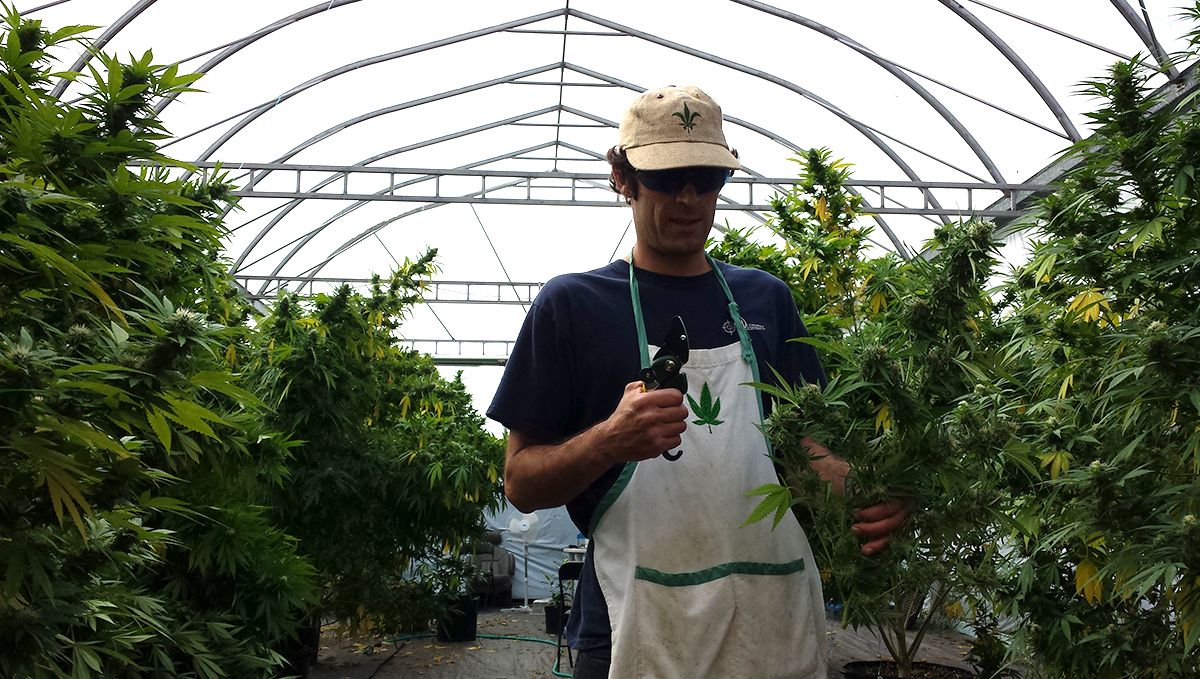
Sebastian Good: Of course. Because it makes everybody able to grow in the end. It makes everybody the possibility to have a smaller plant. And you don't have to be so on top of it. You don't need a light schedule for it. And it was just something novelty and not everybody, but a lot of people looking for something new and interesting.
Sasha: Exactly. And it wasn't necessarily big growers who were interested as people maybe who didn't grow before because this just opens, it just makes it easier for anybody to grow. You don't have to be a commercial or professional grower. You just want to have your own stash. Exactly.
Sebastian Good: So, how did that affect, as I said, the black market? How did you do it then? You started making batches right away from that, and then developing it more and more through a selective process?
Sasha: Exactly. Definitely, some mistakes were made in the beginning, because the fact is that because we were growing on such a small scale, there were some variations between the first generation that we officially called Lowryder, it was just actually really good quality, really had that taste of the William's Wonder in it and it was strong enough, it was quite strong. But because we grow two or three generations in such a small number of plants, that led to a certain amount of inbreeding.
Sebastian Good: You lose every form of hybrid. Vigor is not non-present anymore. You have nothing there. I can see that.
Sasha: You had like a proportion of plants that were just too small, very small plants. Some of them were a little weird. There was too much inbreeding happening. So then, I start to make new versions, for example, the Diesel Ryder, so then bring in some new genetics, and make a new version of automatics. The Diesel Ryder, the Chronic Ryder.
Sebastian Good: And that was also eventually that you developed the Lowryder 2?
Sasha: Yes. The Lowryder 2 actually--
When we talk about Lowryder, it's probably Lowryder 2 that most people knew and tried, because it became one of the most successful strains of all time, Lowryder 2. Well, yeah, what it was, was taking the Lowryder, original Lowryder, and crossing it to the Santa Maria which was I believe a Brazilian strain that I got seeds from and it just had amazing flavor.
It was very strong. It was quite popular at the time, not super well known, but it was a really elite genetic. Bringing in that new blood into Lowryder 2 was much stronger, more stable, and more. That's the one that really took off and became one of the most popular strains of its time.
Sebastian Good: And there were all regulars by that time still? Or you were already putting feminized out at that point?
Sasha: We started to put out feminized. It took us a couple of years to figure out the feminization. So, we were selling regular seeds in the beginning.
Sebastian Good: And this was all still happening in the black market at that time, right?
Sasha: Absolutely.
Sebastian Good: And how did change that when you finally got the medical, that you had to live a little less in fear and that you could get the scale a little bit further up? Because I think you got some sort of medical license, right?
Sasha: Exactly. Yeah. For several years, I had a license as a medical grower, as a designated grower. Basically, I had a couple of designated patients who I was allowed to provide for. So, it wasn't any type of commercial license that actually allows you to sell or buy or sell cannabis products, but it was a form of protection where, yes, I could invest in my own greenhouse, I could grow my own plants openly and not be afraid of the cops showing up as long as I basically have not a lot more plants than my numbers or whatever. And it also started to be more of a tolerant just atmosphere in general towards growing. But to be honest, it was also a big distraction to be a medical grower because I took it seriously. Yes, it was a means to an end. It was a way for me to continue what I wanted to do, which was breeding cannabis and creating new strains. But it became a whole-- it took on a life of its own.
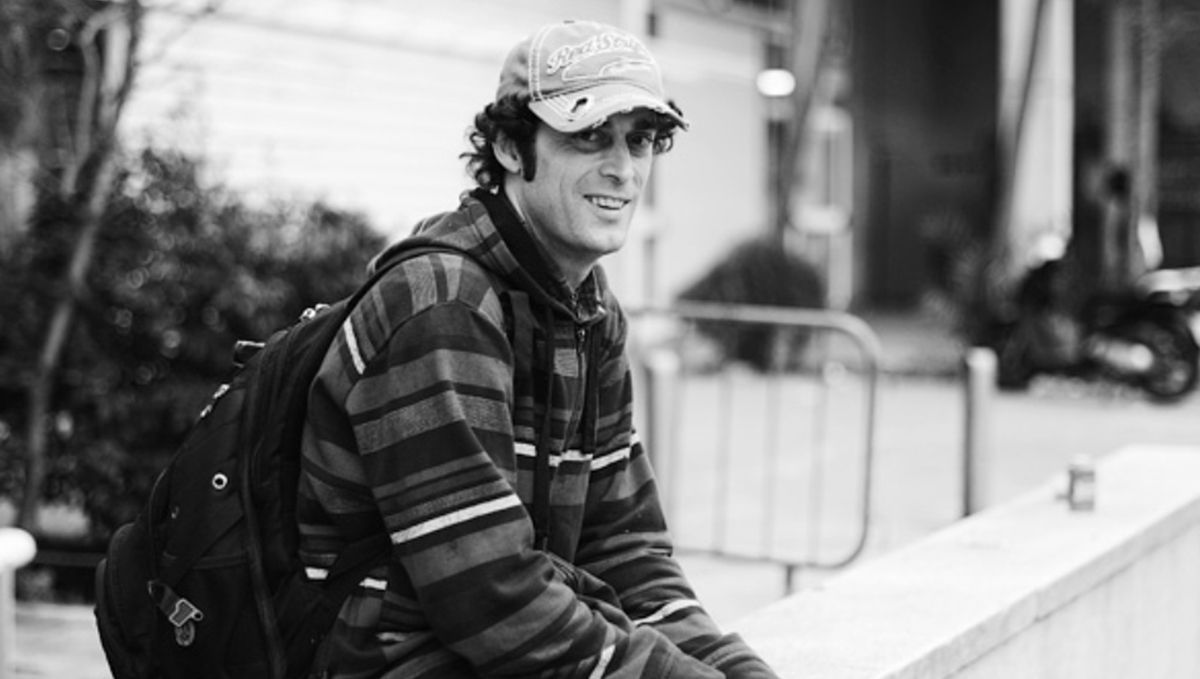
Sebastian Good: Yeah, I 100% understand. Sometimes I'm providing for myself and I'm testing a lot. Sometimes I'm just f1 breeding a little bit here and there for myself, just for the fun of it. And I know sometimes, every home grower knows trimming gel. And once you start providing for others and you take it seriously, as you said, you have another job on top of the breeding.
Sasha: Exactly. And it's about trying to maximize. So, if you're a grower, now you have a license to do it. It was hard to get that license. So now you feel like you have to grow as much weed as you possibly can just because just to make ends meet. Because often these patients can't pay very much for the product. Before you had to provide it for free, and then do your little things on the side. So, yeah. I do enjoy growing. It was amazing to be able to grow out in the open. And what I like about growing here in my own greenhouse is people can visit me and a lot of times they want to go-- they didn't want to come in the house, they want to go straight to the greenhouse. "So, how are those plants doing?" It's like a show and tell. I could give them a tour. It's like, there should be that-- It's like a little bit of cannabis tourism.
Sebastian Good: One day, I'm going to come for the Joint Doctor cannabis tour through his old greenhouse. One day for sure. I can't wait for that. At the end of the day, we all want to be safe, but all this legalization, the big deal they make about it is not easy.
Sasha: No. It's really, they went too far into the heavy, heavy regulation, treating cannabis like we're producing let's say--
Sebastian Good: Opioids.
Sasha: Yeah. Whole pants. totes. Or toxic weapons of mass destruction or something. The security is just unreal, and so much waste, waste of resources with so much bureaucracy. And everything now has to be packaged in tiny little packages for the consumer, one portion at a time in plastic. It's just like it's so--
Sebastian Good: It's wasteful, and then on top of it, it's not even good. I just have these jars here or here, these jars, they're just simple glass jars. They're airtight. You'll open them up, put like Boveda pack in it and you keep your herbs fresh for months and months and months. If I put it in a little plastic bag, and it takes a long time to get to the consumer, all I'm getting is a little bit of crumbles. It's just sad.
Sasha: Exactly. Yeah, it's really sad. So, it takes a lot of the fun out of it. Luckily, we still have a long way to go. The fight is not over, which means--
Sebastian Good: No. The fight's never going to be over though, but the fact that we are here talking about it and that I'm not hiding even though I'm in a country where it's not fully legal. I have other people who are in other countries, I talk to. Dagga DNA, he's a grower from Slovenia. It's super illegal there. He grows now. He shows faith. He knows he's not doing anything wrong. He's providing for himself. He's providing medicine. I'm not hurting anybody. In fact, I am using, I am buying things. I'm buying fertilizers. I'm buying grow tents. I'm buying lights. There's a huge industry there. You're doing something good for the economy. That's what it is. I'm not hurting anybody, and that's what we have to come down to realize. And hopefully, more and more all over the world, it will be like that.
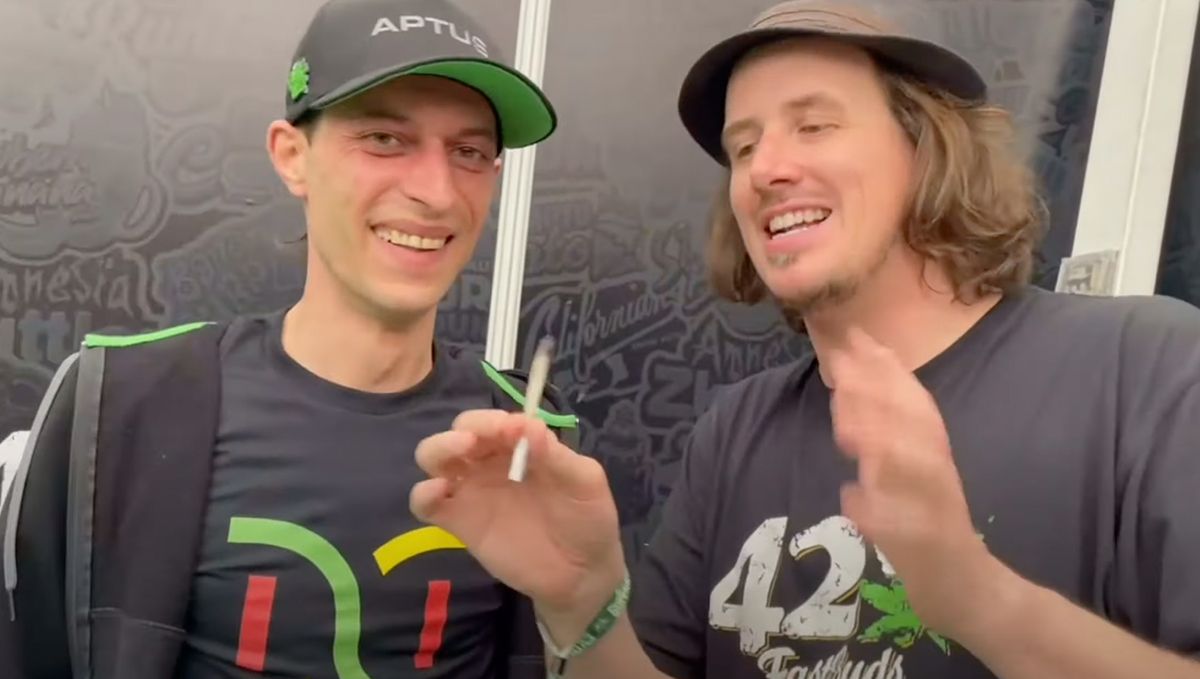
Sasha: Thanks to guys like you, really helping get the word out there, just education.
Sebastian Good: Education and just trying to destigmatize. I can't make it legal, but I can break the stigma. There is nothing wrong. That was the other day. There were a few people over at my house. There is alcohol all over the tables, right, all over the tables. There's beer, there's wine, somebody has a gin and tonic, and I put my grinder and my packs down on the table, walk away from the table, and walk by the table again and then me, me as the guy, takes the grinder and the packs and puts it somewhere else because of the kids, and then realizing, talk and telling to myself, am I nuts? There's alcohol all over. Nobody's putting that alcohol away. Nobody's doing that, but I have to feel like I have to put the cannabis away. It's easier to drink a sip of a drink than to burn one down, to roll one up. You must know, you're a doctor, you're a joint doctor.
Sasha: Oh, yeah, it's amazing. Well, I'm not a real doctor. Actually, my mother is a real doctor. But tell you, doctor cannabis, honorary doctor cannabis, I hope.
Sebastian Good: But definitely. I'm going to bring your cannabis doctor title when I'm going to come over one day, honorary one. I started a petition and I'm sure I'm going to find enough signings for that.
Sasha: Sounds good.
Sebastian Good: How was it for you to see Lowryder, your baby? I know how it feels to be honored for something like winning the AutoFlower World Cup, but it's not my personal strain. It's for a company I work for that created that strain, I grew it, so it's my baby. But your baby, your creation, your genetics, to see what happened, to see Lowryder get out of this in the world. You're also making on top of it, money of it. But you see, it starts an entirely new category of How did that make you feel back then and now?
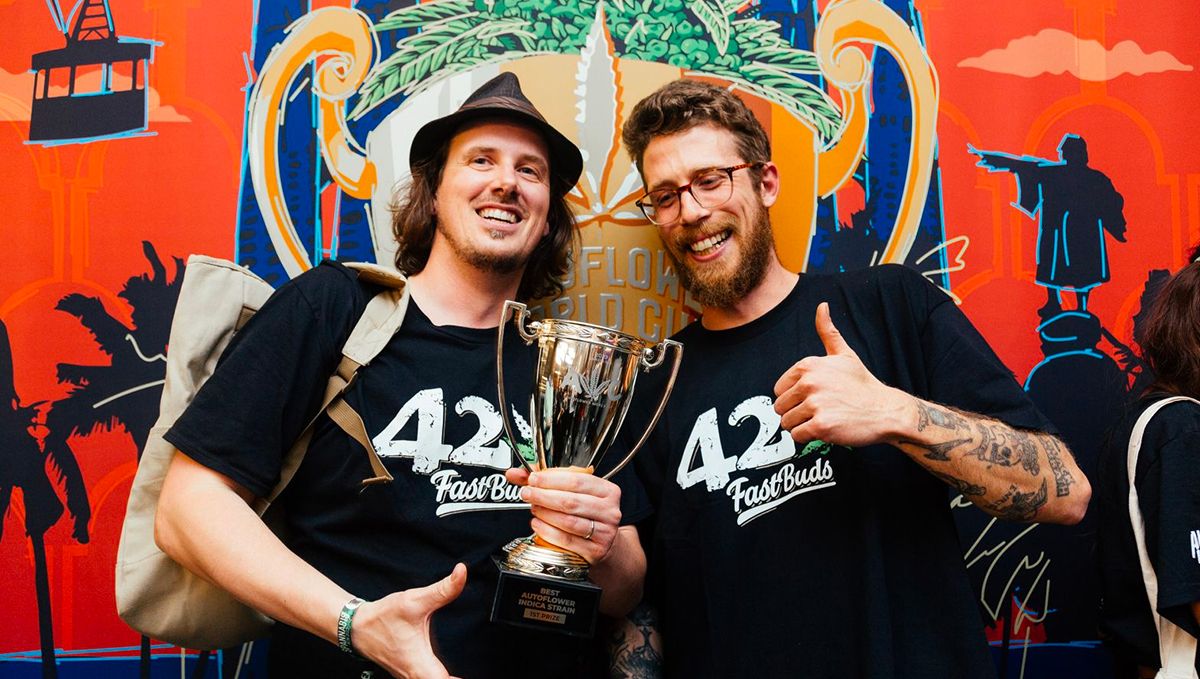
Sasha: I'd say back then, it was exciting, it was exciting to be--
People knew, not necessarily knew me personally, but knew what-- especially what we're talking about, other people, my peers, other breeders and whatnot, started to respect me and accept me as one of their equals.
And to be able to get to know people I looked up to like breeders like Simon from Serious Seeds and a lot of these old school breeders, and starting to basically be one of them, this tight-knit sort of scene of breeders. It was just... it was exciting. But I don't know. I still want to do better. There's still a lot of work to be done.
Sebastian Good: There's always more work to be done, Sasha, let's be honest. If it would be at the end, would it be worth being here? There has to be something which can snacks. But to have also not only older breeders respect you but also have younger breeders come onto you and show you, look what I created out of your Lowryder. How's the feeling like that? It's just like to see it continue.
Sasha: Yeah, exactly. Yeah, no, that's the most amazing thing. Because it was like, yes, Lowryder was there. It was almost like a moment in time. It was a breakthrough. It was kind of like a eureka moment. Since then, so many people, so many talented people like you have taken it to another level and taken what Lowryder was and created bigger and better versions. Of course, I'm just one person I can't do everything. And there are better breeders. There are bigger growers, better growers.
Sebastian Good: There's always better everything.
Sasha: There are always new ones, right? I always took an attitude to the basically, your genetics are going to get out there anyway. You might as well just accept that this is going to take a life of its own now and you can't control it really. There's no way. It's out there.
Sebastian Good: It's still genetics. I hope we won't come to the point where we are having that with some genetics of crops, somewhere places over the world that they put like a trademark symbol on it, because that's just sad. That will never work. It will never -- People will always go against that at the end of the day. And if you see modern autos, or automatics, autoflowers, whatever you call them. Actually today, I sprouted one of your Devochka. Is that how you say it? Devochka?
Sasha: Yes. Exactly.
Sebastian Good: Because so I'm like, you always try all different strains, and then you have our strains like the Gorilla Cookies or the Strawberry Gorilla, Tropicana Cookies. If you see those modern strains, what do you think?
Sasha: The way that the seeds are marketed today is very, very innovative, very dynamic. It's a whole generation beyond what it used to be. But it's moving so quickly. It's very hard, it's hard to keep up. I like to think of it as like it's like the music industry.
Nothing is really developed in a vacuum. Your ideas aways come from other influences, right?
When you get a tune, now there's a remix now that's going to come out and a whole bunch of remixes and it's just, it's moving much quicker than it ever did before.
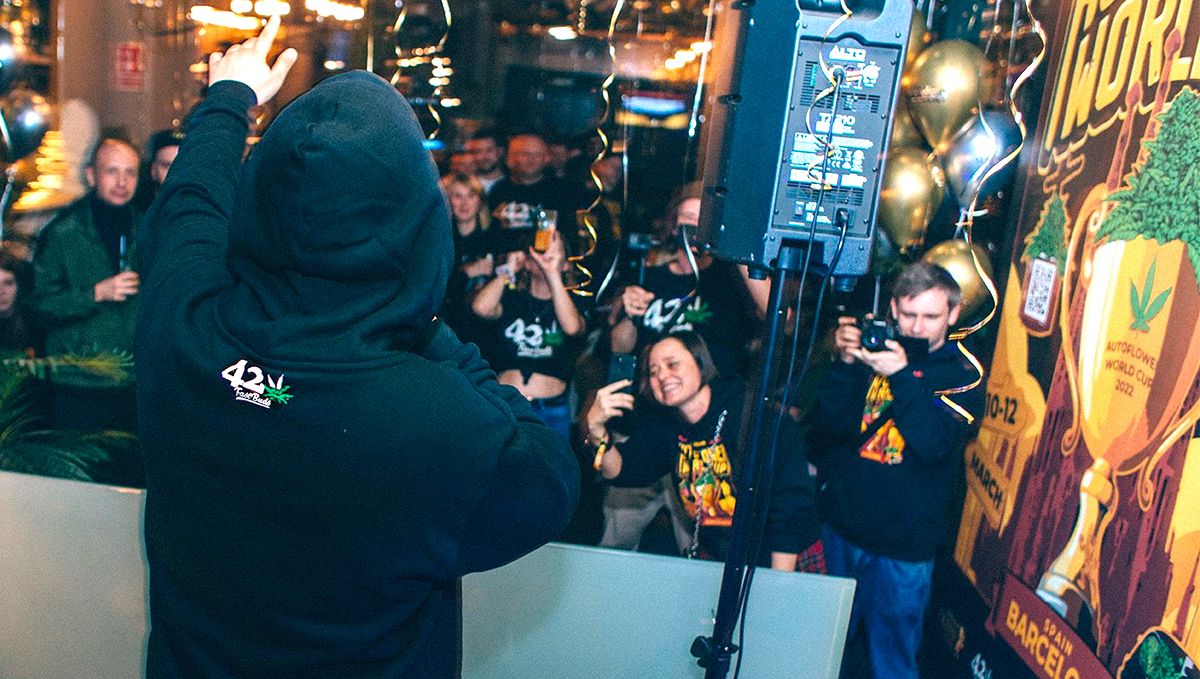
Sebastian Good: But we are in luck with the autoflowers that we have such short grow cycles, and even though we can't keep any mothers, we can keep on breeding. And it also keeps us on our feet. Don't you think so? Because you can just go and do the cutting and sell that cutting and just sell that over and over and over again. You just have to keep on developing. The market is just crazy how fast it develops.
Sasha: Absolutely. You know that from personal experience.
Fast Buds is just very innovative coming out with new strains all the time. And you've really hooked into that more dynamic way of marketing.
And, yeah, you have to be. Otherwise, because it's moving so quickly--
Sebastian Good: And there is a demand for this whole-- The other end of it, the whole not just the automatic. I love that gene that locks it, that makes everything so and the turnaround so fast and also simpler, easier. But on the other end, you have all these different flavors. The dessert strain market, what's happening in California for the last 10 years or so, it's just crazy what kind of flavors, and the demand is there, the people want it. And it is amazing how you may compare to 20 years ago, how you can make strains taste like strawberry, you have cherry, you have, you have the banana purple punch. When I threw that in for the first time and I grew, I'm like, this is not only beautiful because it's purple, but it also literally tastes like a fruit basket. I mean, this is just like--
Sasha: That's amazing. Especially, like weed actually lives up to its name and you can taste that flavor. Yeah, it's amazing. It really is.
Sebastian Good: Absolutely. And, yeah, and then the potency game. Everybody was like saying like, well, still people are still saying, oh, autos, they're not really potent, they're not really-- And then you come along with our Strawberry Gorilla, 28.417% tested at the American Autoflower Cup. So, what else do you got to say to that? This is just--
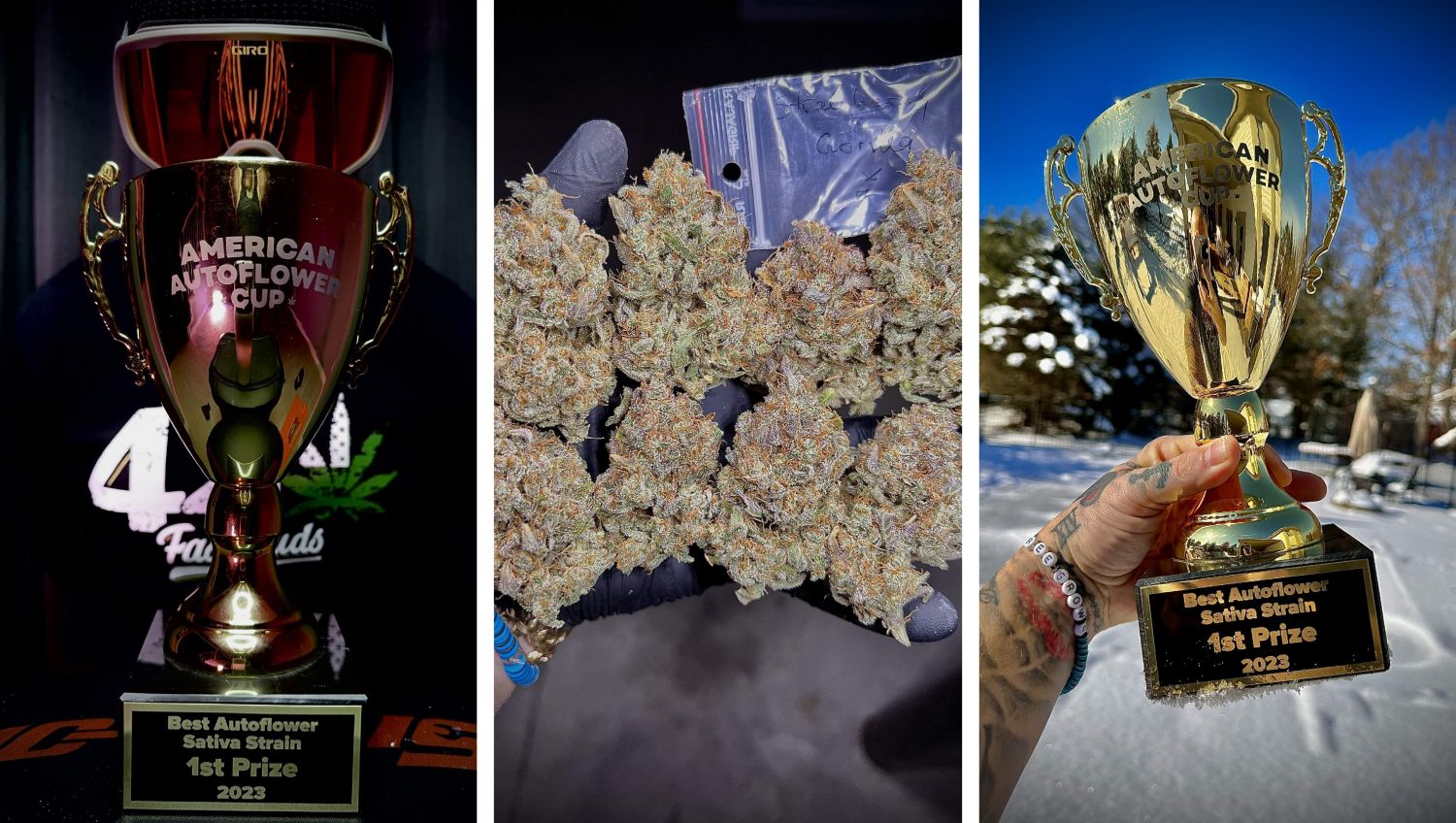
Sasha: End of conversation, right? It's not about that anymore.
Sebastian Good: That's it. That's it. Okay. Let's move on from here and continue and think. Do you see on Instagram, I started more and more following on Instagram, and I don't know if you ever heard of him. He's from Canada, Canamatoes?
Sasha: Just vaguely. I've heard of him.
Sebastian Good: He grows exclusively autos, a lot of our autos, and he now grows in a system called mega pots. This is like an auto self-watering system. I'm starting it soon too. And he has these autos in 60-liter bags, 60-liter bags under 24 hours of light, and he yields one plant a pound, dried weight pound. I mean, come on. Now people say autos are small. Uh-huh, also not. We have modern genetics nowadays, which are mind-blowing. Talking about that, which auto-flowering genetics, automatic genetics, or modern ones have blown you away nowadays? Did you come across some stuff? You were judging the Autoflower World Cup? Did you come and you said, whoa?
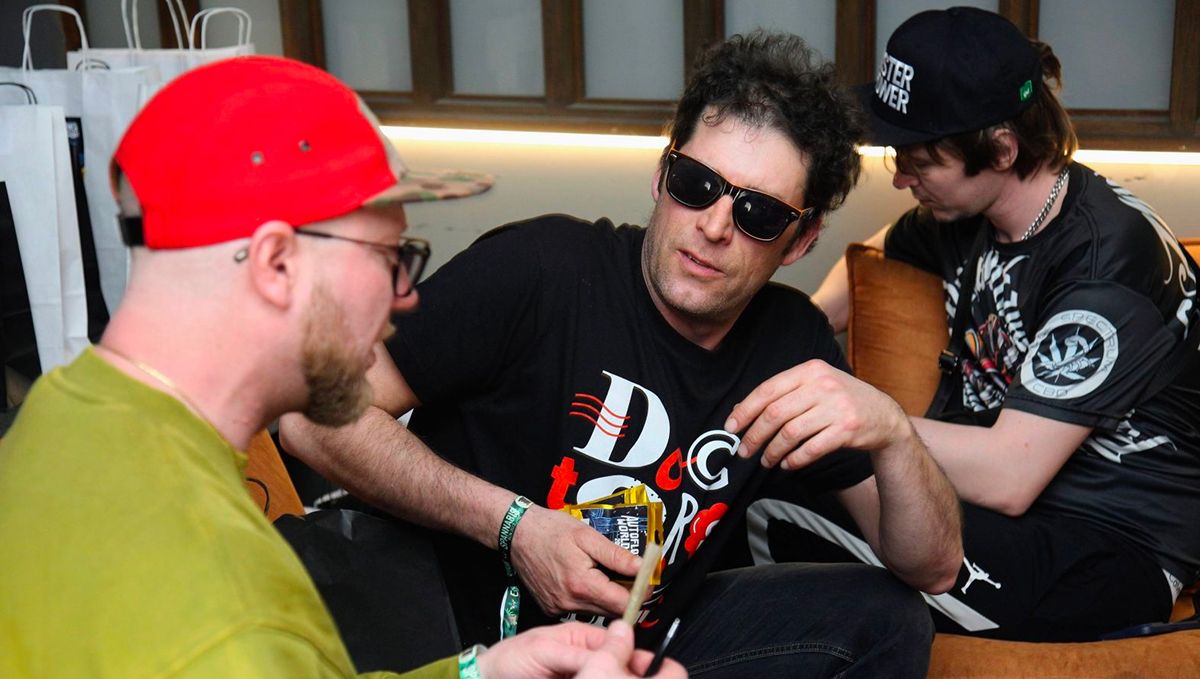
Sasha: Overall quality of all the strains was surprising. So, it was difficult to pick one. It was a difficult thing to judge, actually, because the quality was really higher. It was higher than ever for autos. There was an auto purple punch, which I thought just looked like a purple punch to the colors and everything. I'm always a big fan of purple colors.
Sebastian Good: Oh, then you must have noticed my Tropicana Cookies which in the end won because that was so dark, that was almost black, that one. And it was so frosty.
Sasha: Oh, yes. That was the one then. Because when we were judging, obviously we were just working with numbers, right? So, I didn't know what strain we were testing, but we tested quite a few strains.
Sebastian Good: You must have gotten pretty high then. No?
Sasha: Oh my God, higher than I've ever been, but it was a good high. And the funny thing is, doing the show, I tested maybe 20 or 30 strains in 24 hours, and then having do some interviews and media opportunities. And I'm like, "Man, don't you guys understand? I just smoked 20 joints today, and it actually went up." It felt great.
Sebastian Good: Exactly. That's why on a day like this when I want to stay really focused on an interview like today, you didn't see me yet my packs in my hand. Nothing. I'm sober as I can be because I really want to focus and I really wanted to really get to the bottom of a lot of things and talk with you. And if I get high right now, I'm drifting off left and right. It will be fun and it will be fun to watch, but it won't be as informative as if I stay sober. That's for sure.
Sasha: Yeah, no, I hear you. It's pretty much the same for me as well. I thought so, but it was like it was either one or the other. It was the right time.
Sebastian Good: It was at the Autoflower World Cup. And for you, especially for the great-grandfather of all of them. And in the end, you won too. You had some grower entered your I think it was Doctor's Choice 1, and you won the Second-best Sativa.
Sasha: Exactly. Second-best Sativa Auto. It was a surprise for me as well.
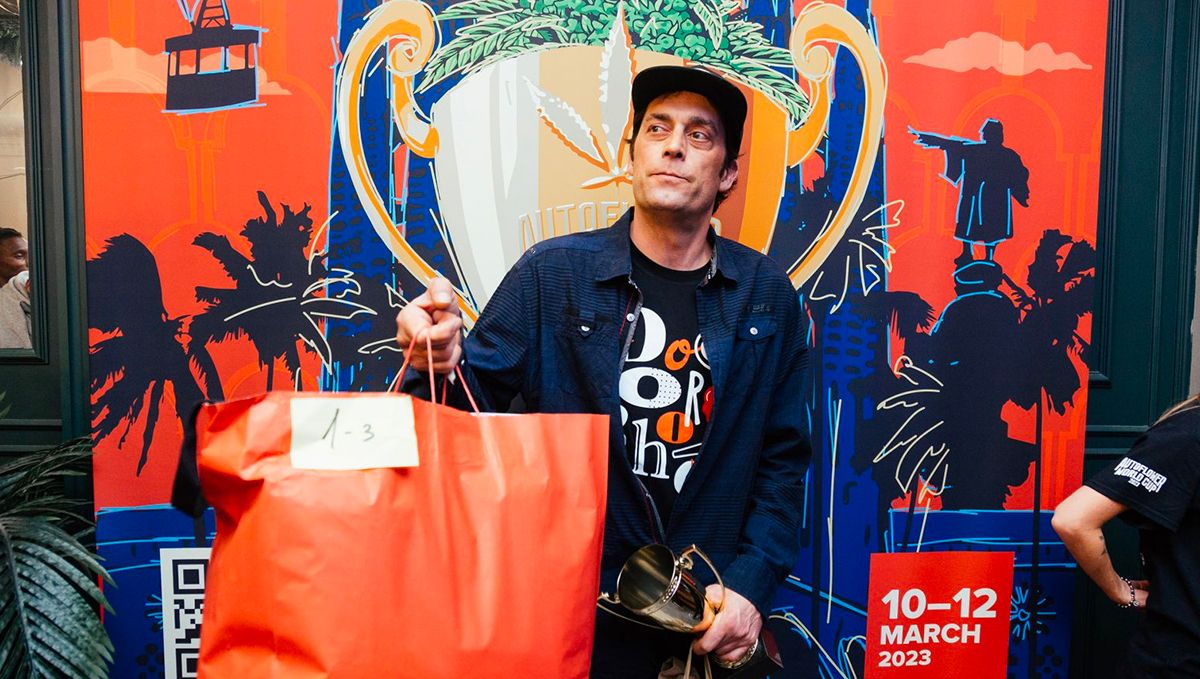
Sebastian Good: Because you didn't know that somebody had entered it.
Sasha: I didn't know. Even when I smoked it and tried it, I didn't know that it was my strain until later when we won the prize. So, it was a really nice surprise. Just it was nice to get some recognition in terms of official recognition and a trophy. It was a wonderful moment. And I thought it was a well-organized event.
Sebastian Good: It was a lot of fun. It was cool. And it had a lot of different judges from all over, from all different backgrounds.
So, I love this whole Spannabis weekend, it's great because it gives smaller competitions the possibility to just be, take place with an international audience and international contestants too. There were contestants from all over, because people were in Barcelona anyway, so they could just enter.
And it was also nice that they make it accessible for everybody. You can just enter this competition. It doesn't cost you anything. And you can just go and enter this competition, and then you have the chance to win.
Sasha: Oh, for sure.
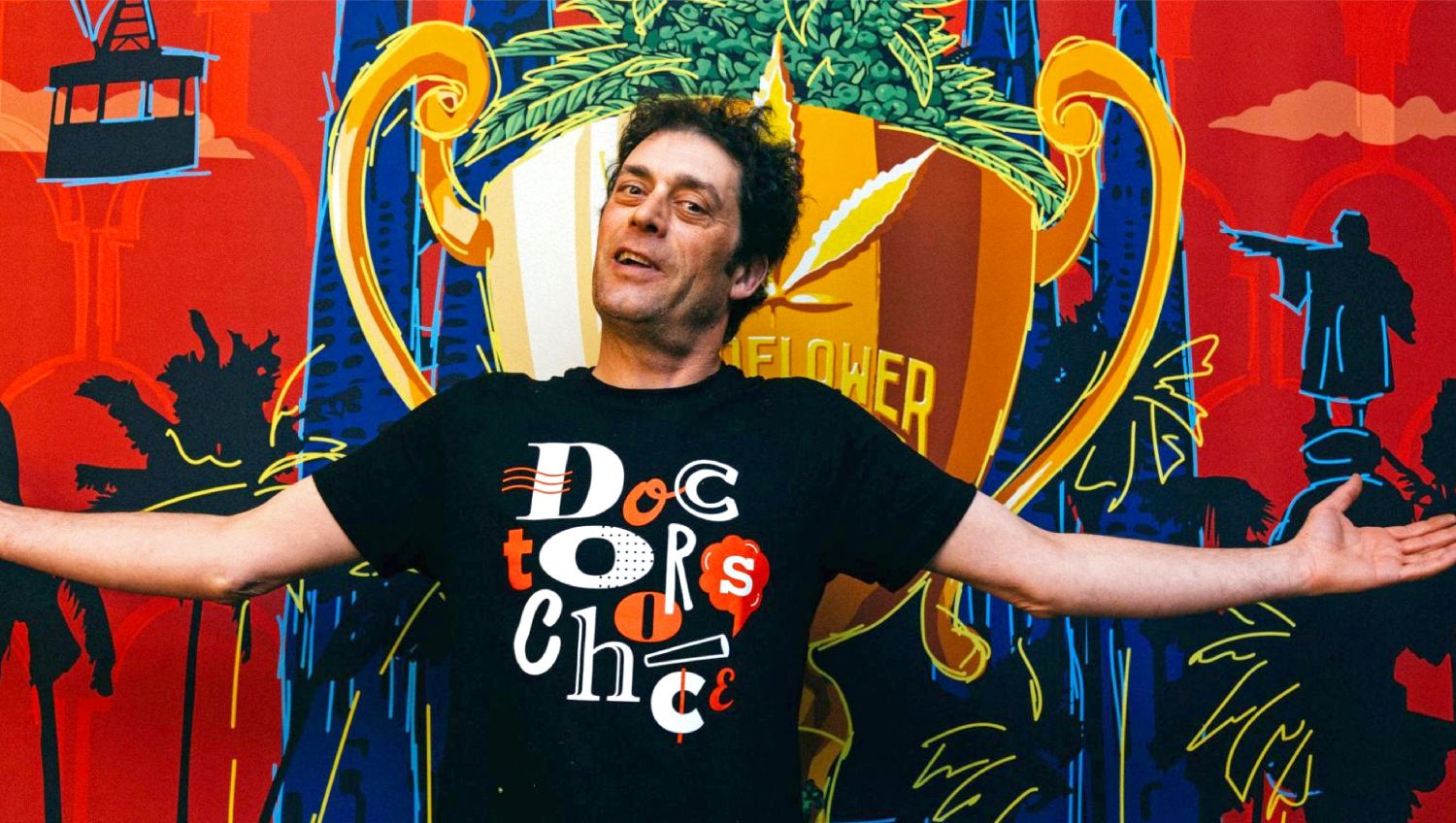
Sebastian Good: Sasha, where do you see auto flowers in 5, 10, or even maybe another 20 years from now? Tough one.
Sasha: Yeah, it's a tough one. Hopefully, more work with other cannabinoids, and other cannabinoid profiles. So, it won't just be focused on THC. You'll have specific maybe combinations of TCH, CBD, CBG, and more stability in terms of the flavors.
Sebastian Good: What do you think in terms of that people, how still they're still even though we talked about how strong and how great flavor profiles modern strains have. Some people say, oh, no autos, no autos. That will get less and less and less, I don't want to say stigma, but like that being looked down upon?
Sasha: Oh, absolutely. It's already gone way down. The stigma, I find that for the average person, the stigma isn't really there anymore. Now, for your old school growers, a lot of them you will never convince necessarily, and they don't have to change. I mean, there are a lot of reasons to grow regular strains as well, especially if you're a commercial grower, trying to grow. You're growing clones. You want one generation to be exactly the same as the next and each plant to be identical. There are reasons for that. But I think there'll be, as we develop strains that are more stable because it takes time to-- Not that the strains that are here today aren't amazing. My strains and your strains, there are some really amazing flavor profiles out there, but to sell it to the commercial growers and to the big growers of the world hasn't quite worked out yet. That's okay. It's hard to say.
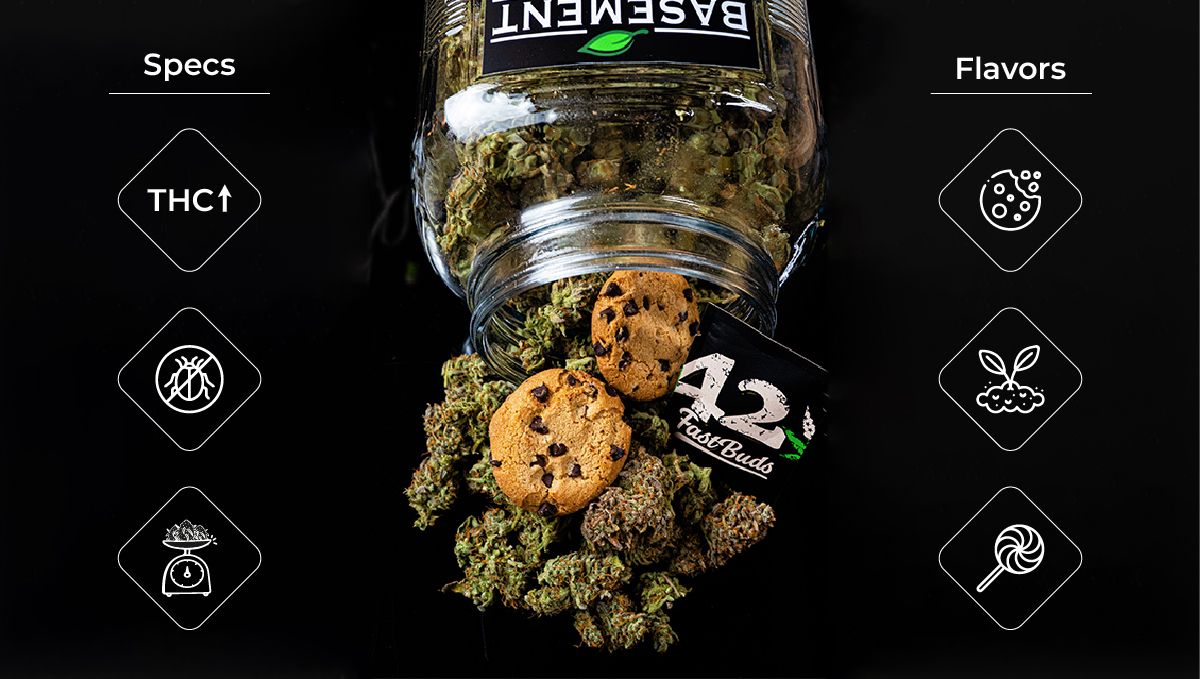
Sebastian Good: I think it will come. I think it will be just like I want it or I don't want it kind of thing. And I think we will also probably learn a lot more about the autos because some growers, especially the ones who come with free conceptions, like people who already grow photoperiodic strains often run into much more trouble than a newbie with an autoflower because they overtreat the plant.
Sasha: Exactly. There are preconceptions about it and that's it. That's okay. There are many ways to grow.
Sebastian Good: Do you have a tip for people who grow autoflowers? What would be your number one tip about growing autoflowers, in general, to have better results than maybe before?
Sasha: Well, I would agree with what you were hinting at a little earlier. It was just like don't overthink it. Obviously, get to know your plant. And if you're overthinking it, overfertilizing, for example, that's where you're going to be the one causing the problems, right? It's not going to be-- You'll be the pest, right? So don't overthink it, but at the same time, pay attention to your plants, and spend a little time with your plants. Get to know what they like to eat, and what the fertilizer regime is, it depends. And every situation is a little different.
Sebastian Good: Absolutely. I think also always, don't overthink it, don't overdo it, let them be. You don't need to train autos like crazy, you don't need to overfertilize them. And play around and love the plant, at the end of the day that will just show in the weed.
Sasha: Absolutely. I am more of a low-intervention guy when it comes to the pruning and the training of plants. There's not much you have to do with autos. That's one of the advantages. You can sit back and mostly let it go. If you just realize that you have to give it a good start, give it everything it needs from the beginning. Because the life cycle is short.
Sebastian Good: Absolutely.
So, for example, what I just learned, I'm using dry amendment, super soil kind of thing, where I'm pre-mixing everything, and all I'm doing afterwards is compost teas. That line comes with the top dress. It's like the flag tasty flower top dress or something, it's called. I just mix it in right away. Because it doesn't make sense to wait.
Give it to the plant and then-- Especially if you have a really healthy living soil, the plant will just find what it's there eventually. And it will take what it needs, you don't need to overthink it. That's what the beauty of it.
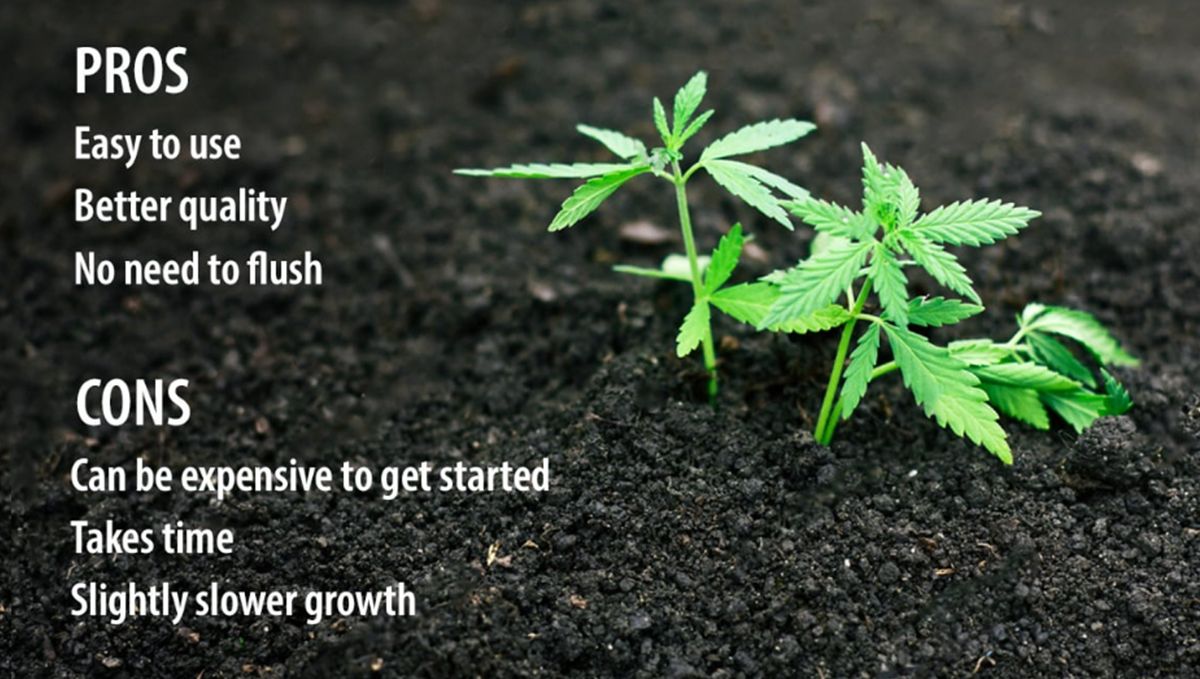
Sasha: Exactly. Exactly. And learn to read the signs of the plant. If there's a deficiency, your plant needs more nitrogen, you got to pay attention to the science. And yeah, and just don't overdo it.
Sebastian Good: One grower asked what three strains I would take to a cannabis-free island. She grows some real fire buds. She helped me out when I was in Berlin. She brought me some of our herb so I could share it with some other people. She asked me because I asked earlier on Instagram who has any questions? So, I like her question the best.
Sasha: I've actually thought about this situation more than once. What would I bring to a deserted island? As long as I had something, I think I'd be good. But I don't know if this is an answer that she'll appreciate, but I would almost rather bring a bag of mixed seed to this island, not knowing what they are. Just so that I have a representative gene pool that has a little bit of everything in it. And then you can adapt, find seeds that work well in that location on that island, or whatever.
Sebastian Good: I love the answer. Absolutely love the answer. Because I know how you feel. And this is like, I'm sure, we talked about this earlier, you had a seed collection from a very young age on and I'm sure you still have them even though you are or especially because you are a breeder. And it is just something very dear. Like in the refrigerator, I have like a shoe box, which is way too stuffed full with all different genetics, just because it's just-- Even though they're not pop then, maybe some of them, I should pop them because they're getting too old, but it's just something it ensures a little bit makes me a bit calmer to know that I have all sorts of genetics enough for the rest of my life to play around with if I need to.
Sasha: Exactly. I know the feeling. Same thing, man. Same thing. It's like, you never know what's going to happen.
Sebastian Good: Absolutely. Absolutely. I hope something happens very soon. I hope that we see each other in person because this was super nice to talk to you, to have the possibility. You're in Canada. I'm in Spain. We're here, and we're going to bring this to the entire world for people to watch. But I really hope to see you again in person. Spannabis was a lot of fun. To see you, meet, talk, and hang out, have a like-minded person. And that's why I love these fairs so much. It's the best thing about them. Really to connect with people who are like-minded and talk and geek outs about our beloved plant.
Sasha: I love it. It gives you a lot of energy, doesn't it, to meet these people. And people who say thank you. I tried their seeds and they have their story. It's great. You come back with really renewed energy. Because on the day-to-day level, growing and breeding, it's not necessarily about that. It's just kind of like grinding a little bit of work every day, trying to stay organized, but then, meeting people like you and feeling a sense of belonging. It's like spreading your-- your family got a little bigger, a little—
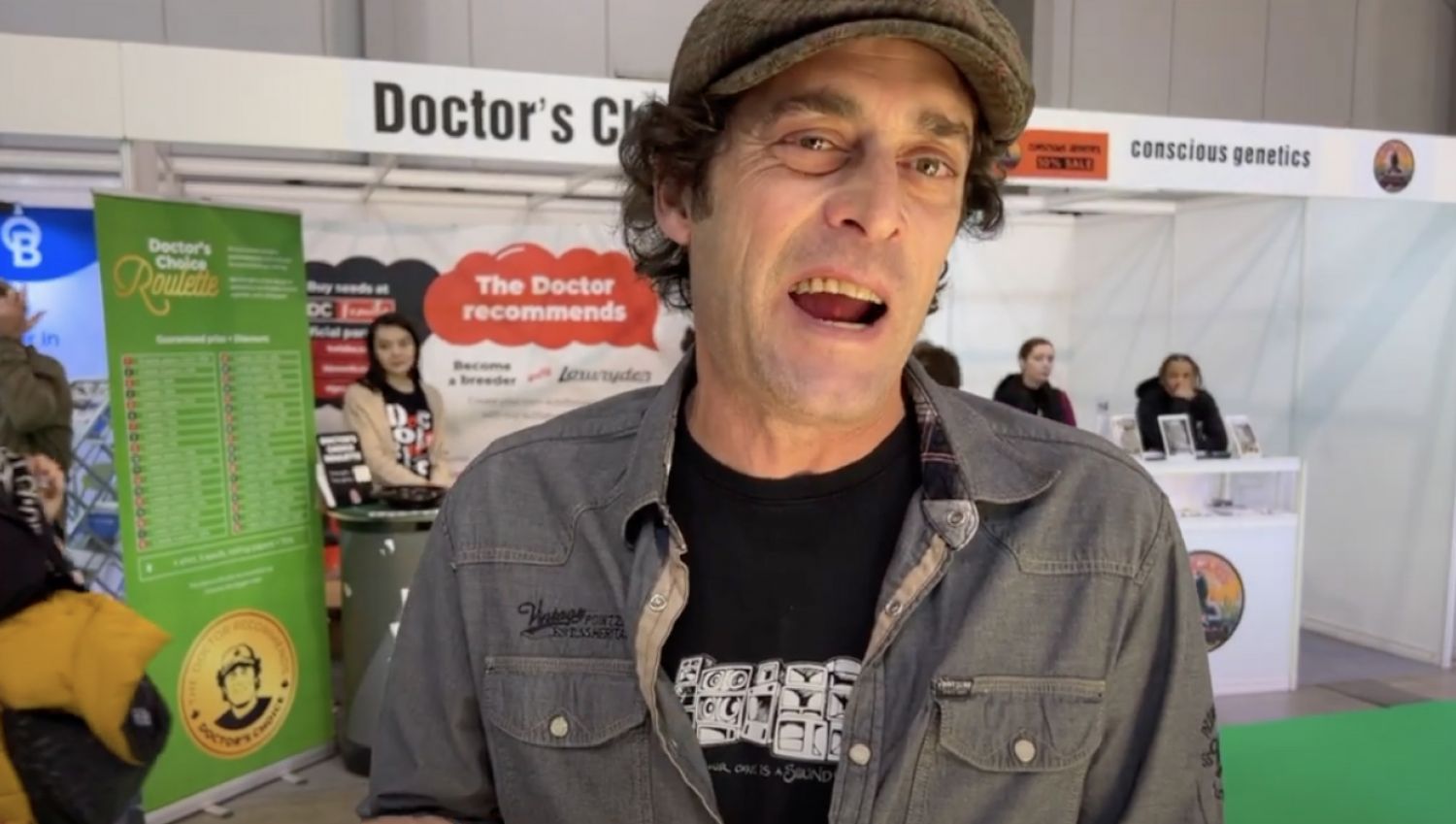
Sebastian Good: Maybe I come to Prague. Are you going to Prague?
Sasha: Oh, yeah, Cannafest will be in Prague as well. So, that would be amazing.
Sebastian Good: I would hope that I'm going to meet you at Cannafest. I can't guarantee yet, but I would really like to come to Prague. I haven't been to Prague in 12 years, and it's a beautiful city. And it's a different thing to experience during these fairs and meeting people you already know and people who understand the industry you're working in and the love for the plant.
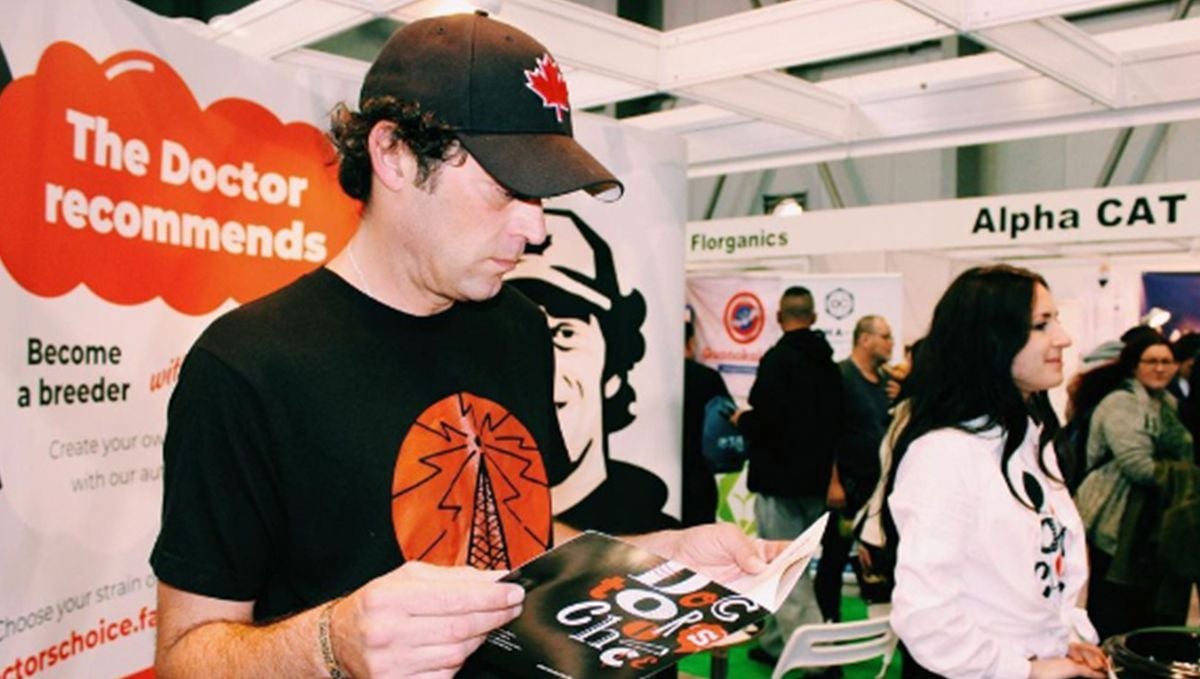
Sasha: A lot of good things that come out of cannabis or the result of just shared passion and not necessarily doing something for the money, for the profit. But that being said, maybe the next time we talk, you and I should talk about doing some kind of collaboration, and especially looking to the Canadian market, a lot of people would appreciate your seeds. Who knows?
Sebastian Good: That's the best thing as well and that I think was the first time really this year in Spannabis where it had that vibe. There was so much collaboration vibe out there, so beautiful how people start working more and more together and realizing that of course there's competition, but competition is good because it drives us. And in the end, if we compete and we can collaborate, we're just going to evolve and we are in the end, in for the same cause. We are in for the plant, for the love of the plant, and I think that is just something.
Sasha: And you can tell the new ones that are coming in that are not going to be around in one or two years, but the ones that stick around that are in it for the right reason for the passion. We've become like family, we respect each other. That's one of the best things about this. So, keep up your good work.
Sebastian Good: Thanks, man. Same to you. Same to you. And thanks for everything and thanks for being there. Thanks for joining and sharing everything. And don't forget: it's 4:20 somewhere!
Sasha: Thanks for having me. Cheers. It's always 4:20 somewhere.
Sebastian Good: Thanks so much, man.








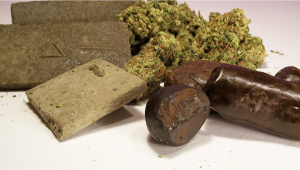
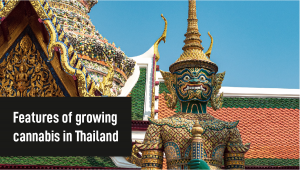

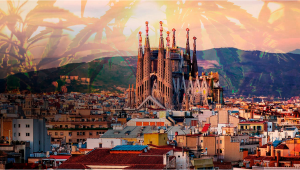

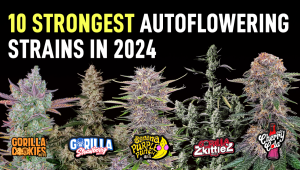

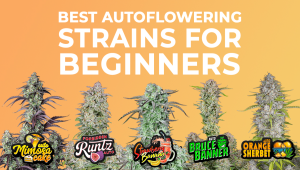


Comments